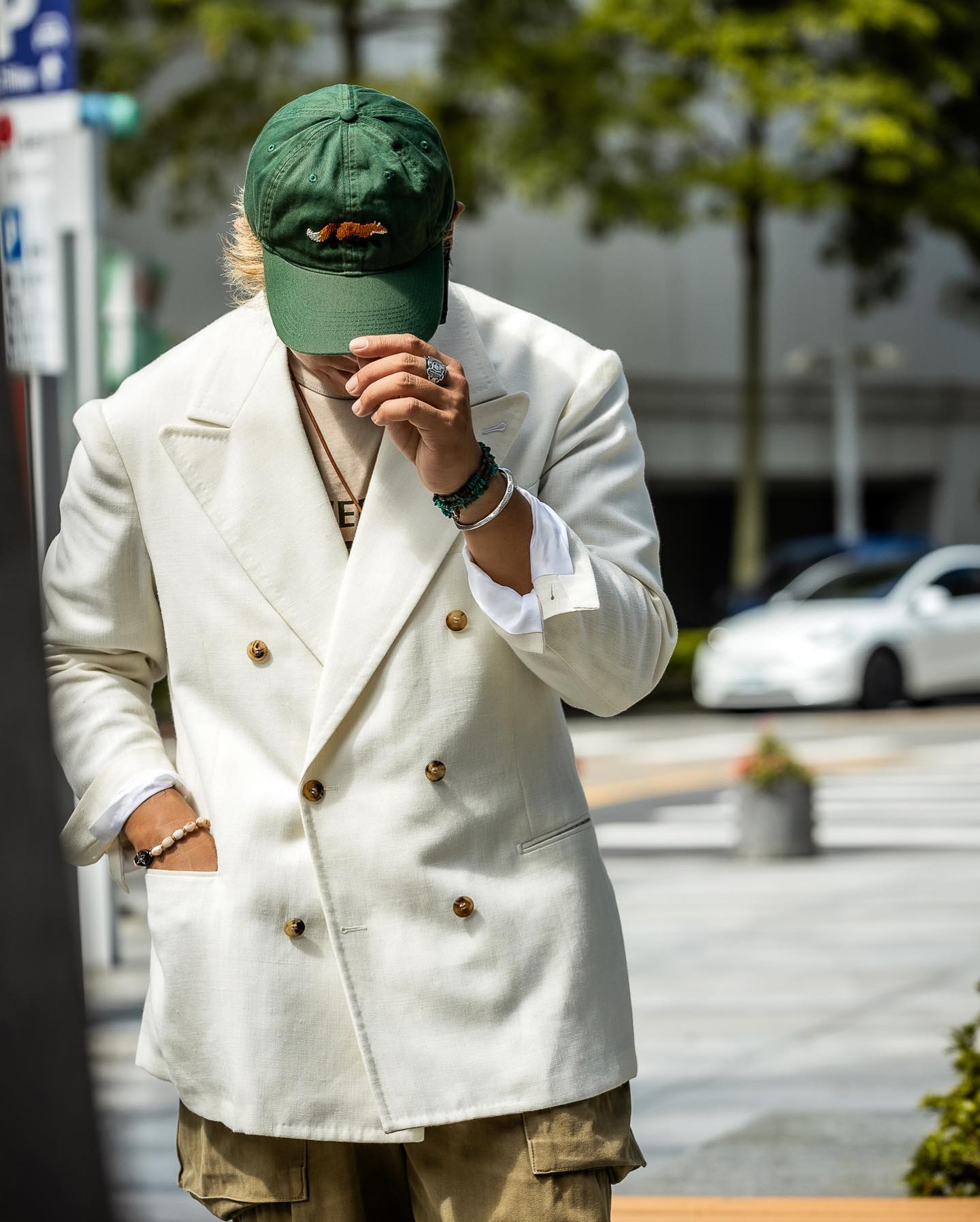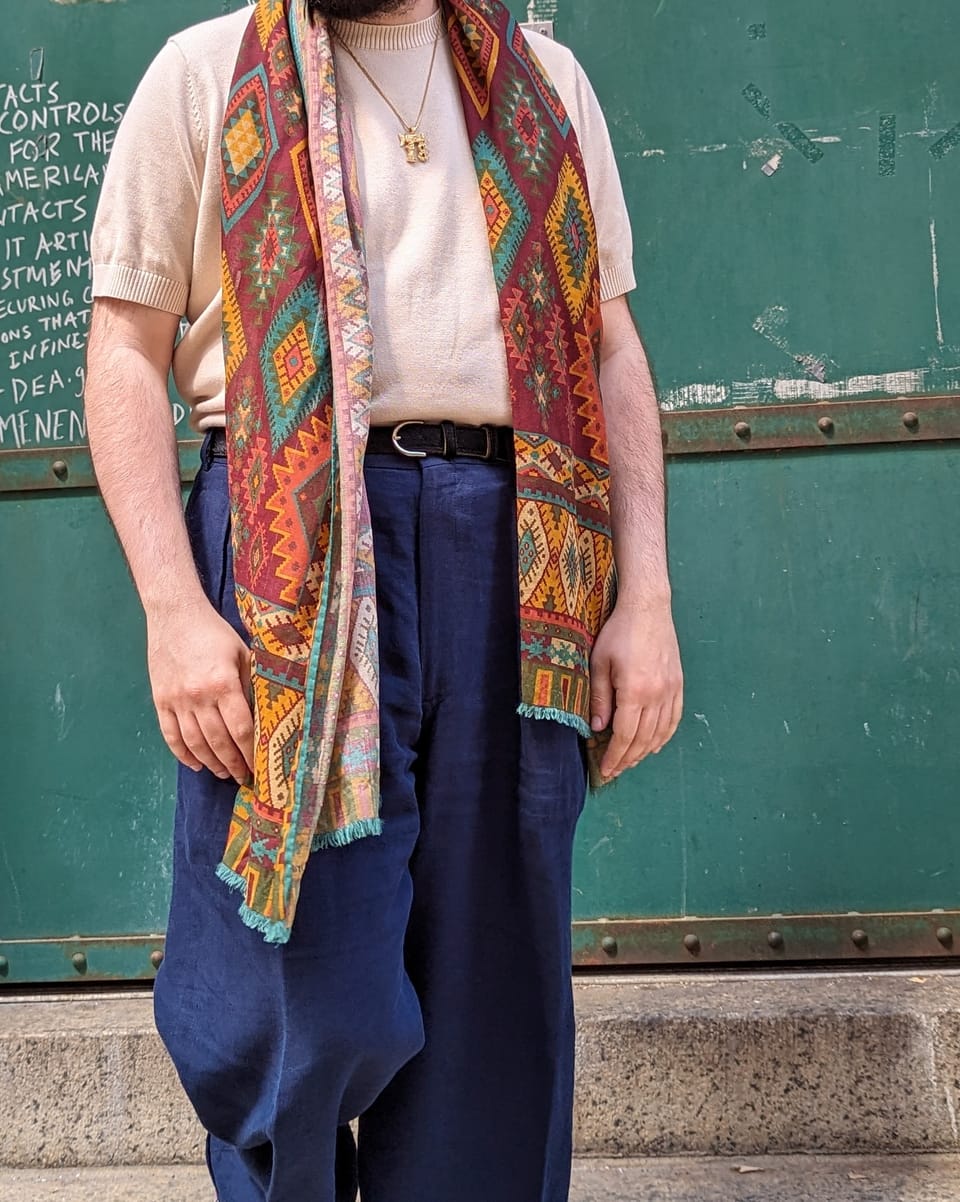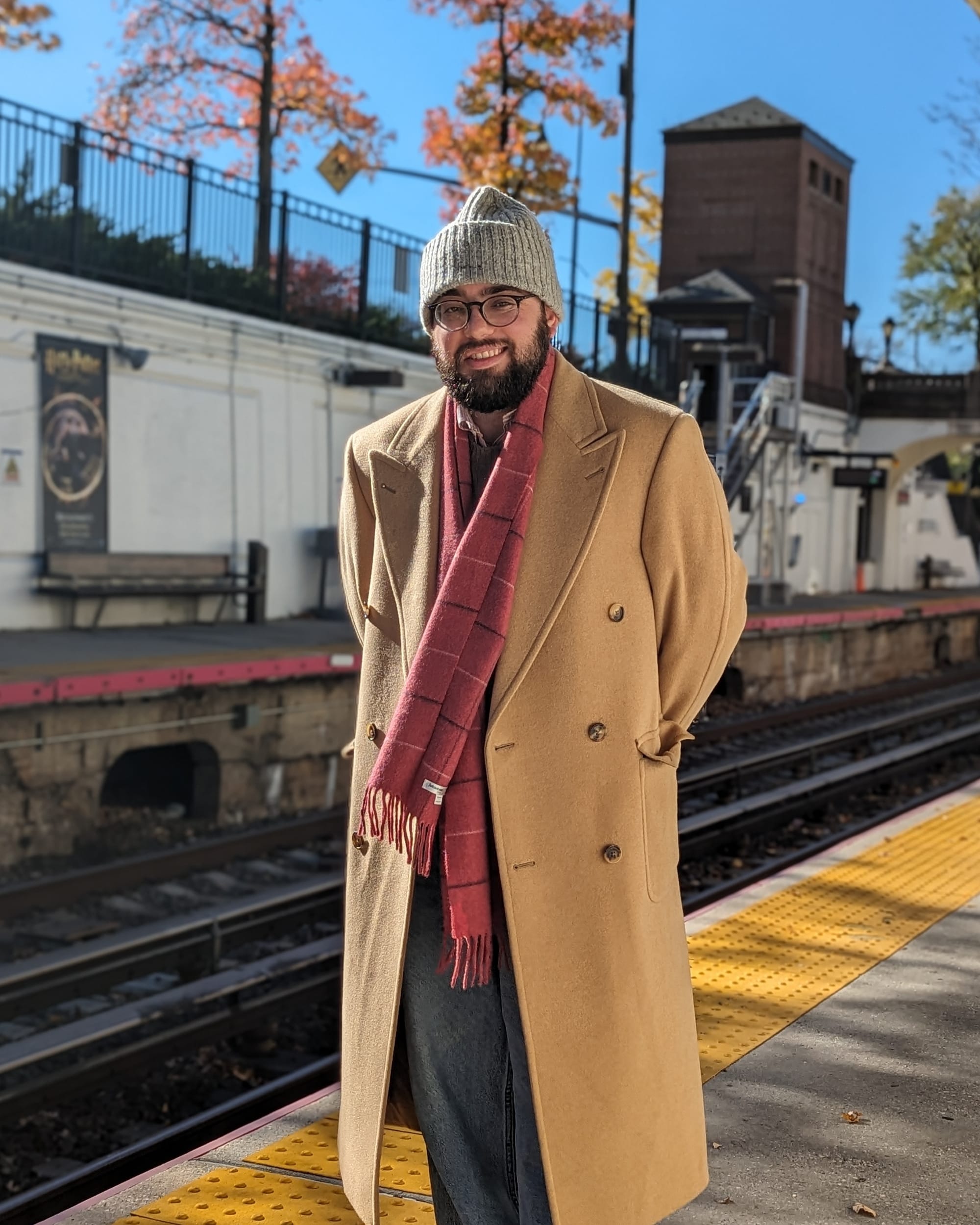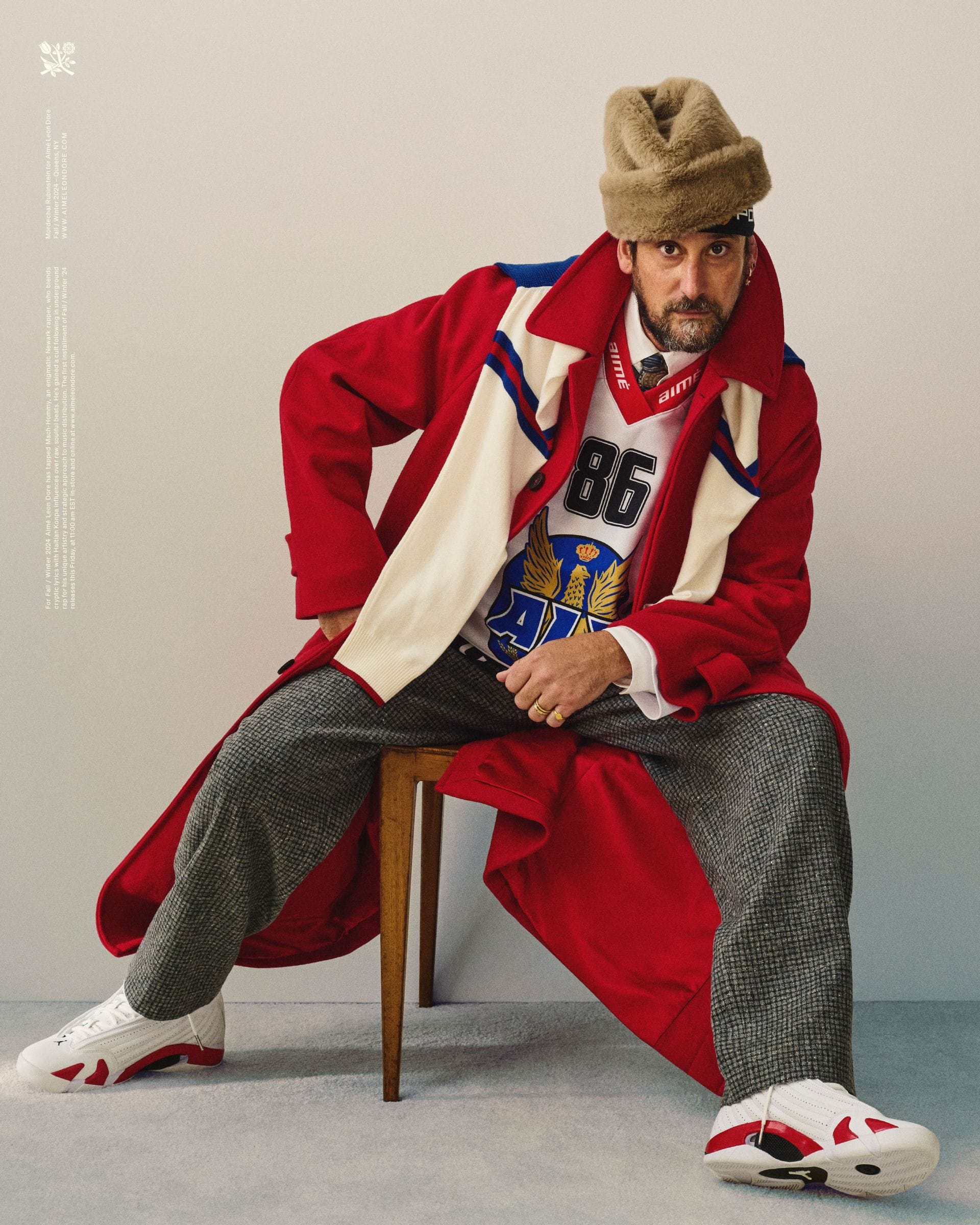Communication Through Clothing part one, featuring Ethan M. Wong, Lawrence Schlossman, and Charlie Caulfield
If style is language, how do you speak it? I explore, through several interviews, different perspectives on expressing yourself through personal style. Here's part one, with Ethan Wong, Larry Schlossman, and Charlie Caulfield.

You've heard that style is personal. You've heard some say that art is about self-expression. You've probably heard that getting dressed can be an artistic endeavor, and that you can and should express yourself through clothing.
But... How do you do it? How do you express yourself? What does an OCBD mean, what does it express? Do ripped jeans make you a punk? Do khakis say you're a Republican? What if you just like leather pants?
If style is language, how do you speak it?
I reached out to people whose style I thought was interesting, expressive... good. And I asked them for their perspective. This was partly for selfish reasons: I'm still learning to connect the clothes I appreciate to the stories I want to tell. I'll be learning with you.
The task at hand is difficult. Many of the questions I asked are questions I don't know how to answer. Some of the people I interviewed struggled with these questions. Some of their responses surprised me. But through that struggle, I think we all learned.
This is only part one of... at least two. I was lucky to get some great responses from some great people. But there's only one way to start. The grandaddy of personal style, who simultaneously treats clothing as artistic expression and a simple act of just wearing whatever he wants...
Ethan M. Wong
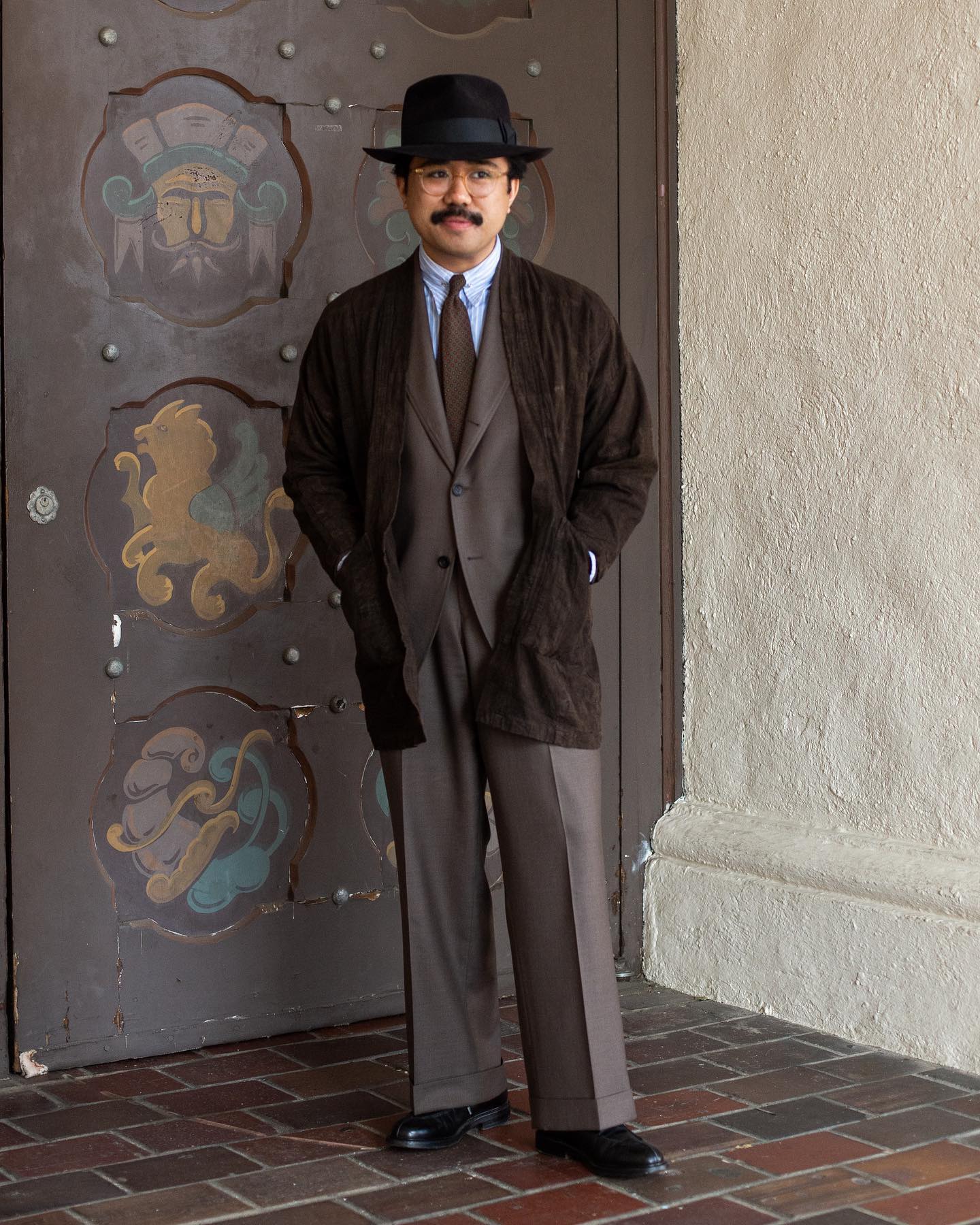
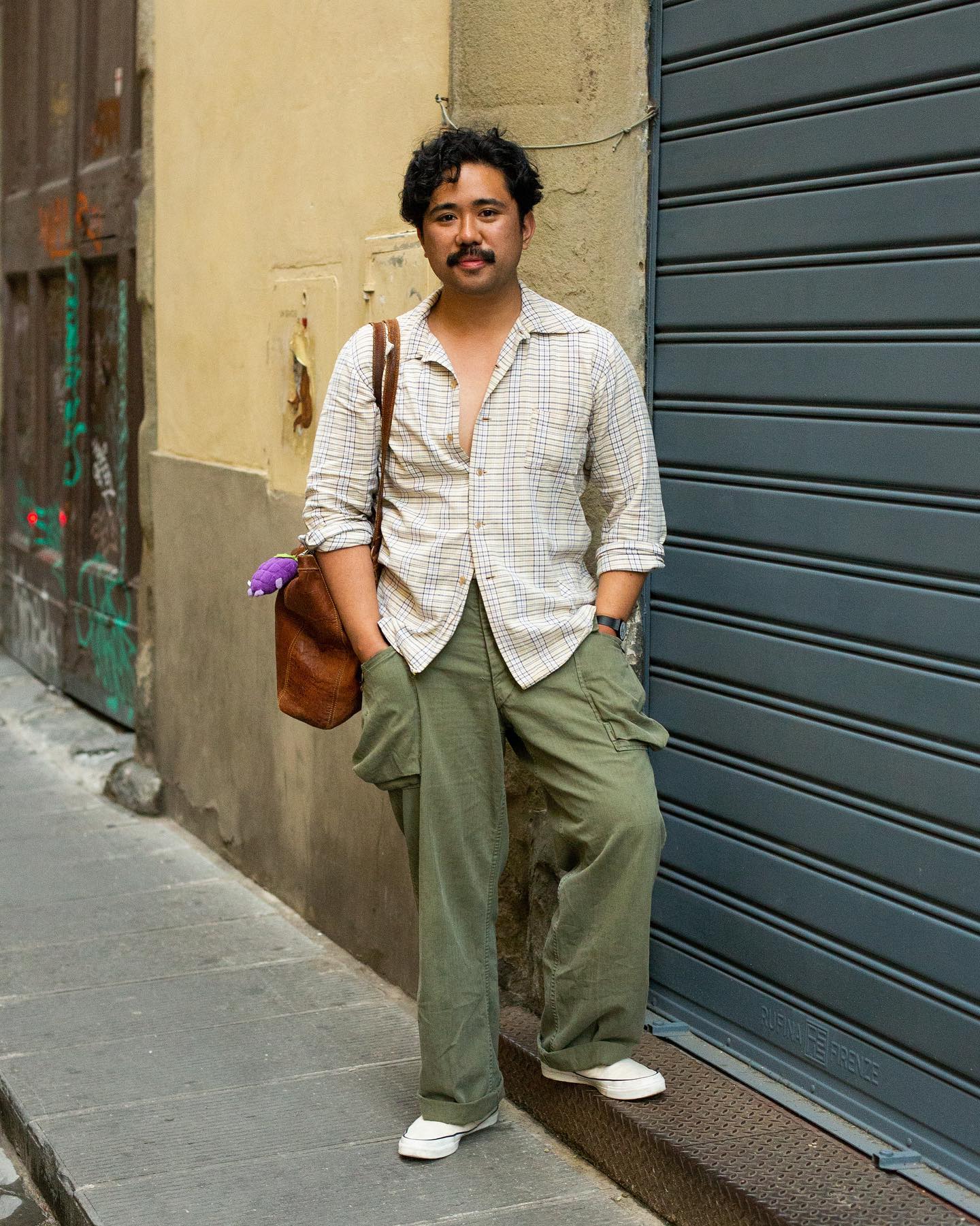
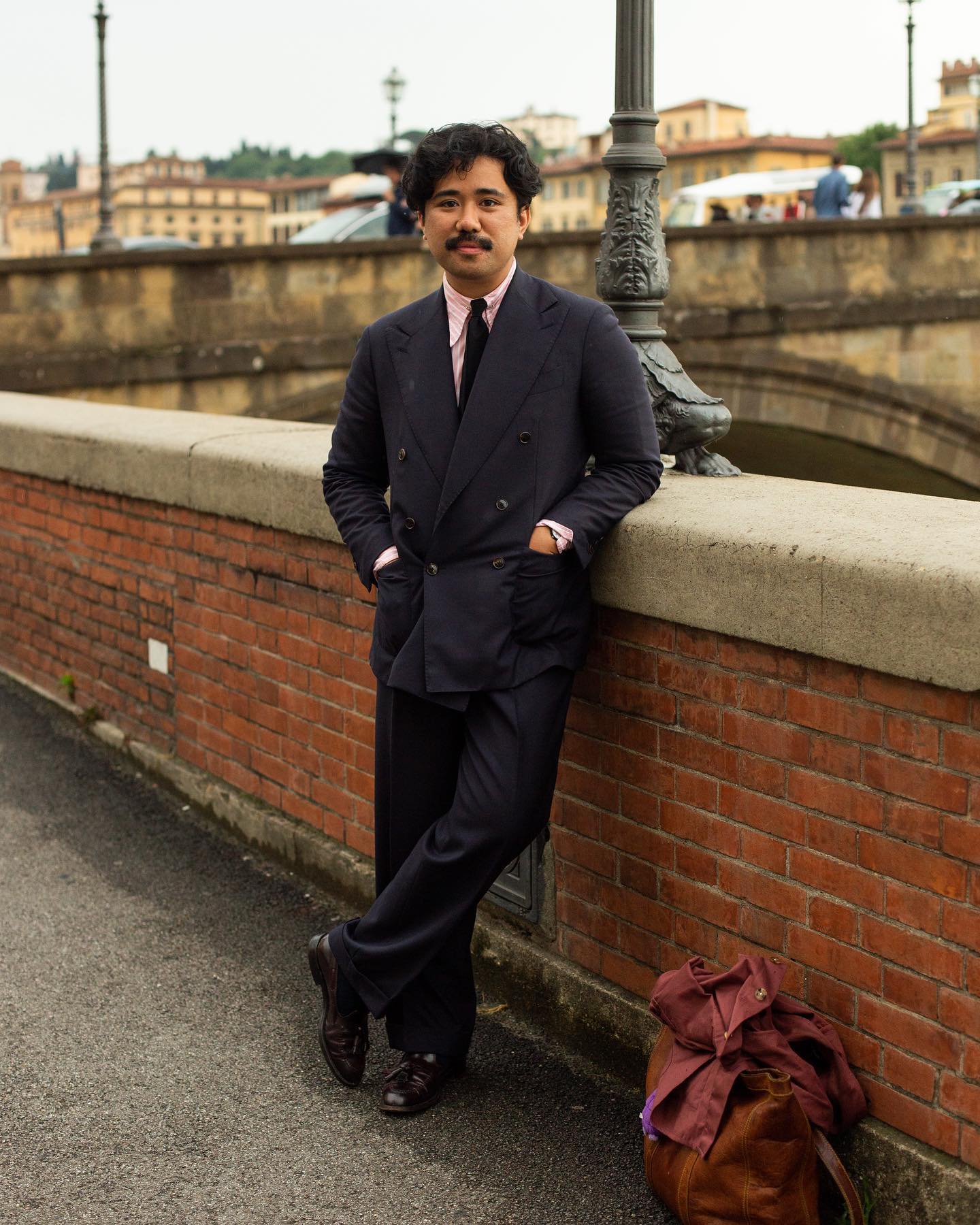
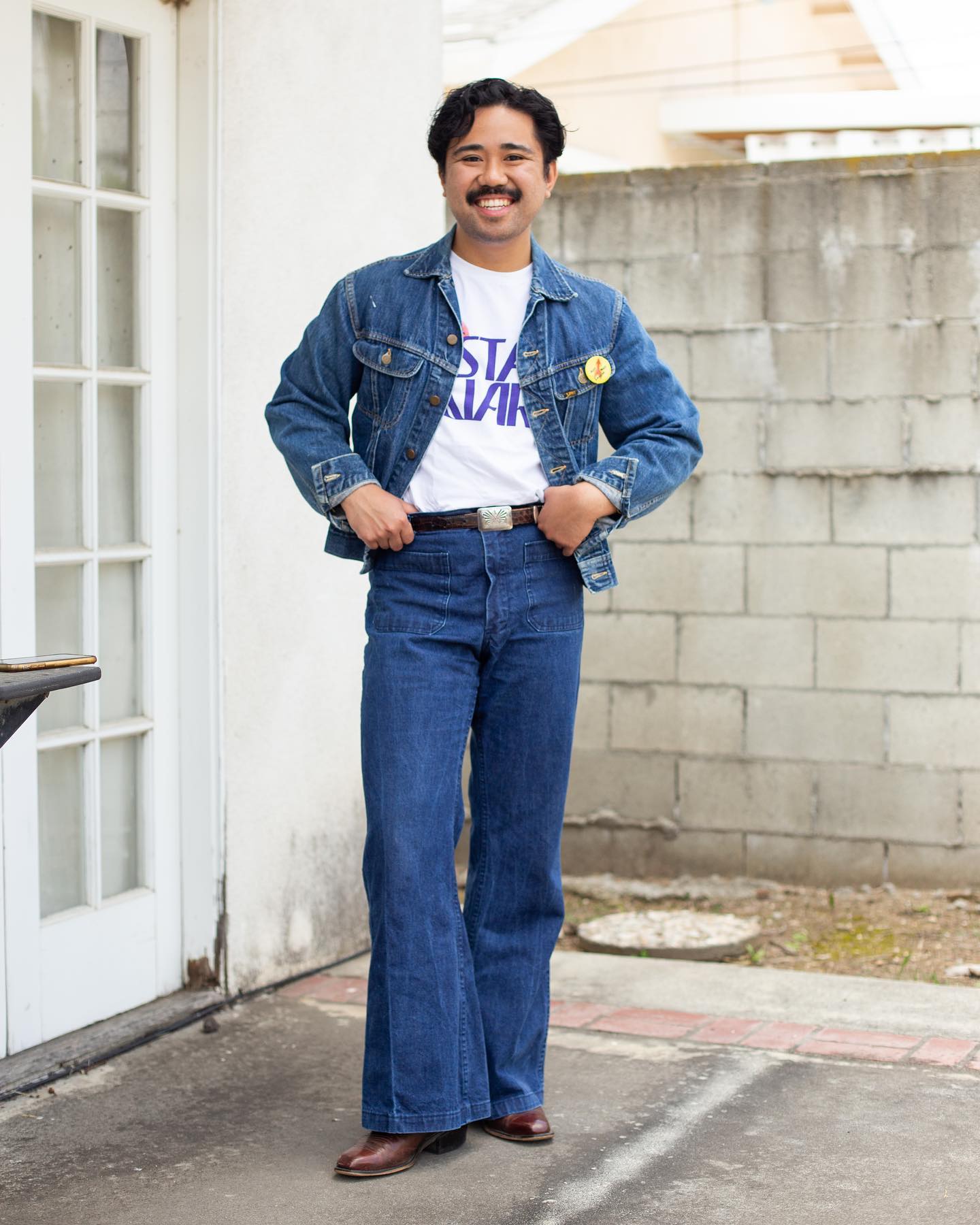
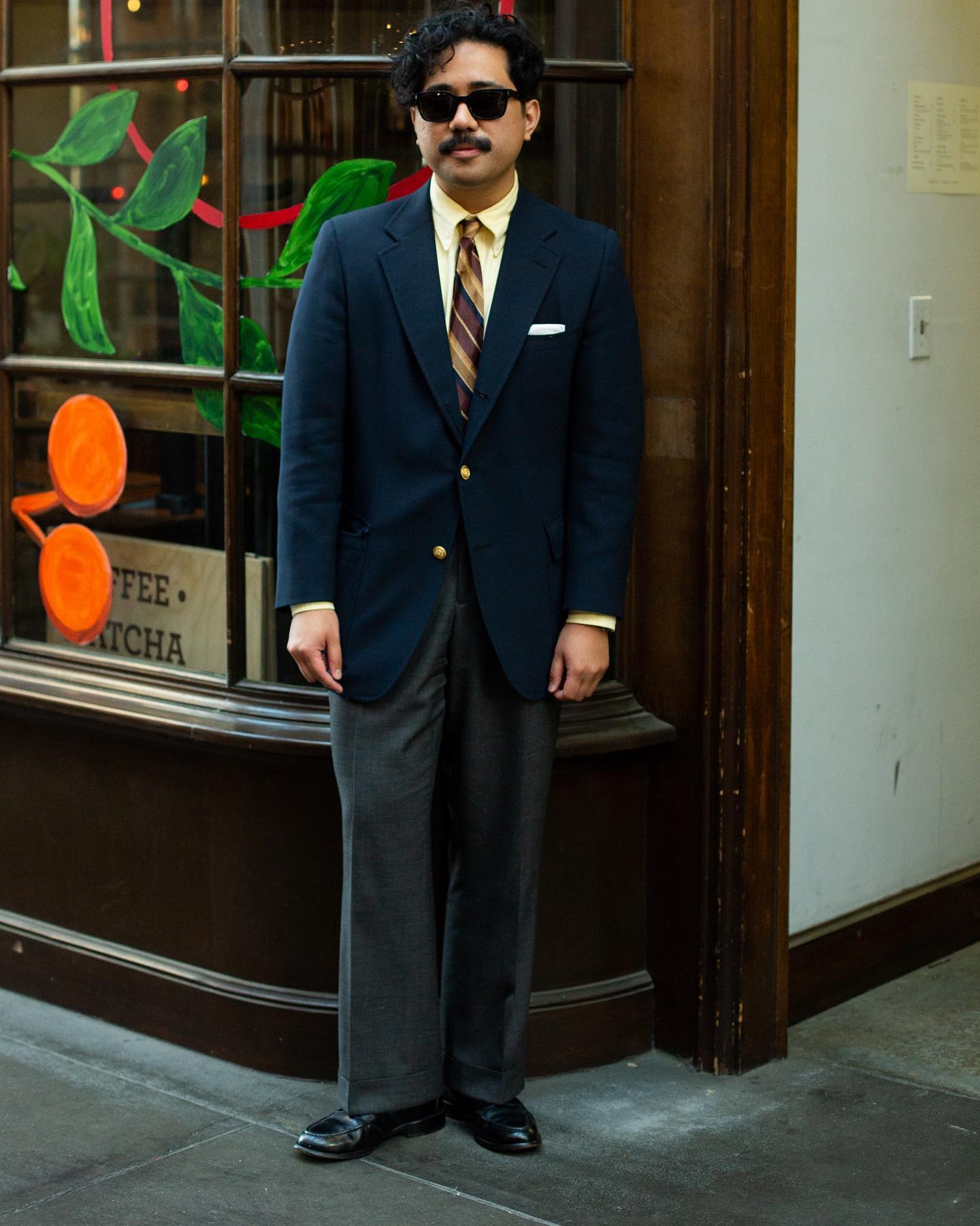
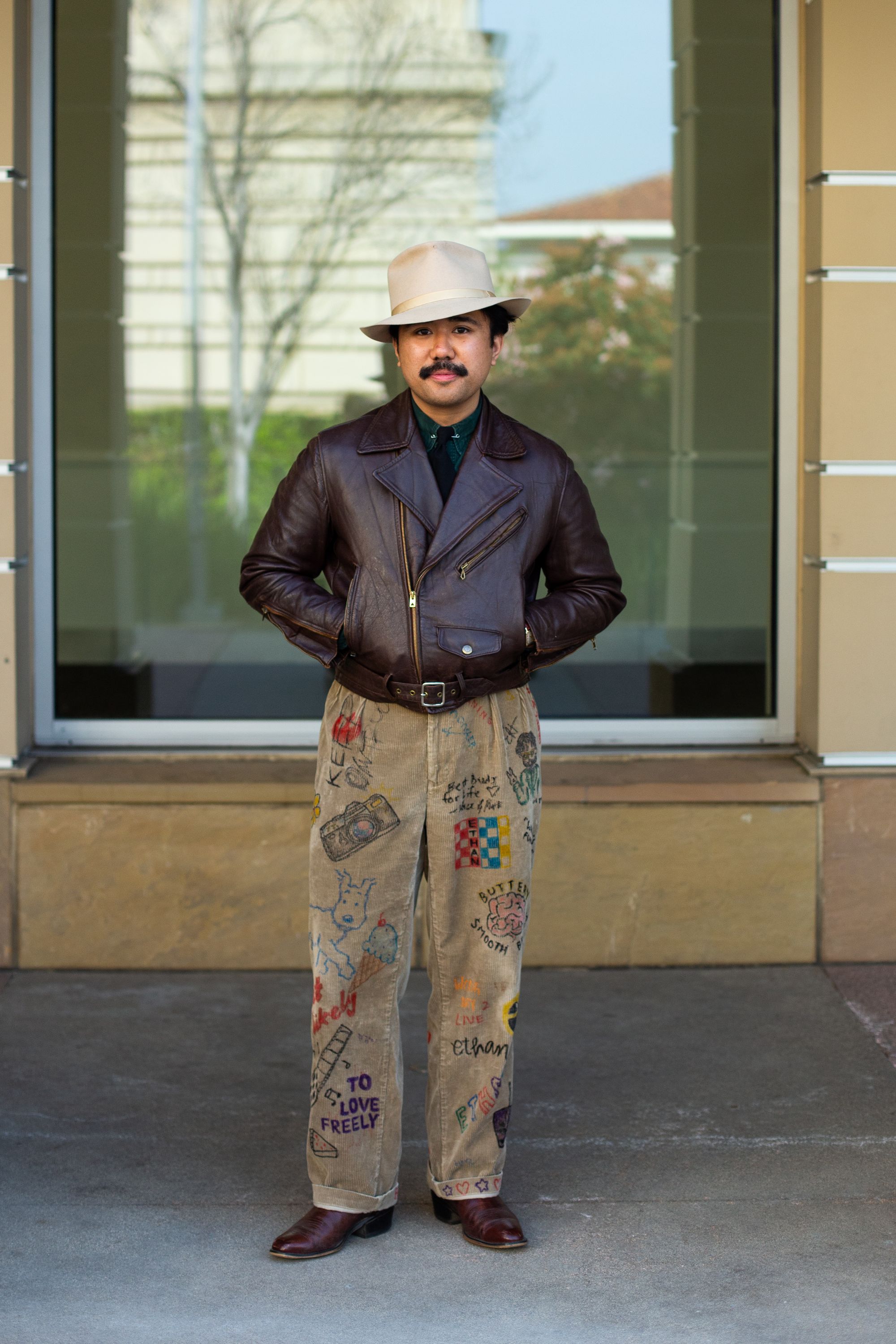
Ethan has found three overarching themes in his style: Classic Menswear, Americana, and Slouchiness. He uses these themes to explore his "fandom" for clothing; he is sharing his hobby with you, and his greatest hobby is getting dressed. But each day, he will express that in a different way. "Some days I’ll play up my inner, wanna-be intellectual/artist vibes, and sometimes I want to play up that I like going to flea markets, or that I like Star Wars." He has different "characters," but each of the characters is him.
Pieces might be disparate or belong to a certain “character” or capsule, but there is an overall theme of being me.
To Ethan, each piece is coded with different expressive properties, and the fun is combining them to express something. His idea of business casual is Ivy style; he will combine a knit tie, blazer, OCBD, loafers, chinos or jeans, all around the throughline to an ivy outfit. But he might, alternativley, wear the OCBD with military chinos and vintage sneakers to give a casual vintage effect. His approach to shopping involves keeping a consistent point of view in mind, so that every piece is something he can see in the context of his style.
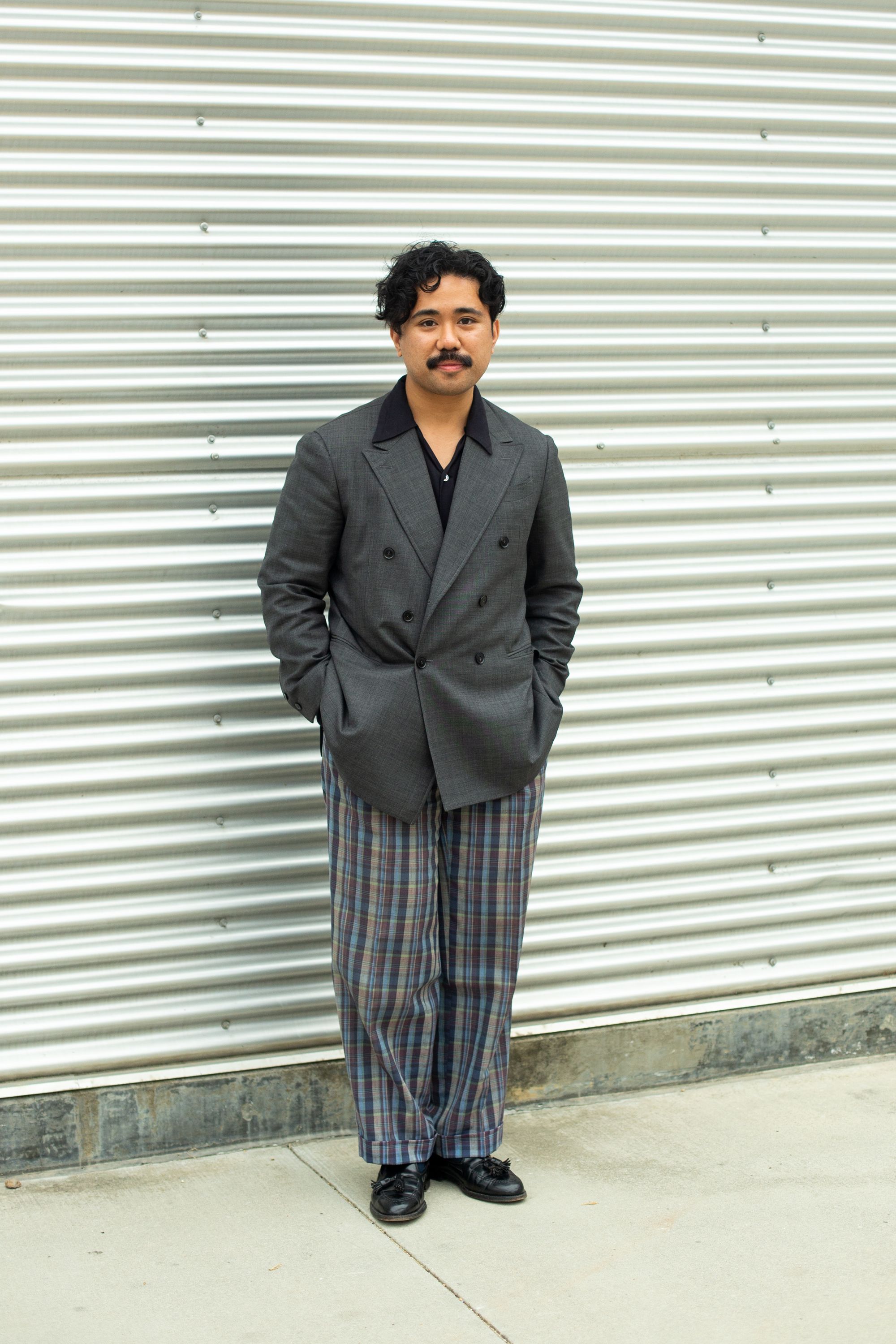
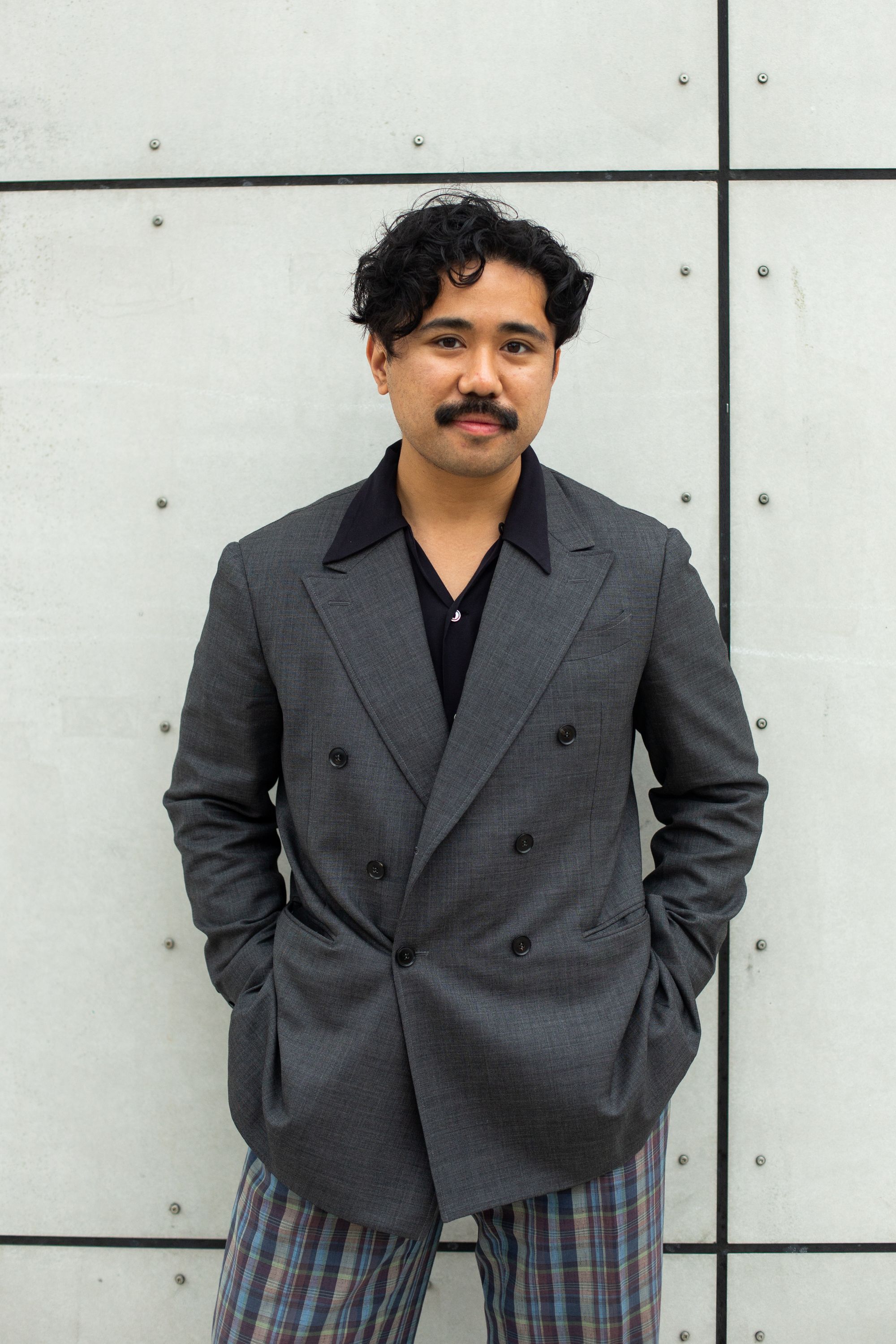
Do people understand Ethan's style? He thinks so "Or at least, I’m avoiding negative connotations, like being a real estate agent, lawyer, corporate guy, or stuffy professor." But it's not all clothing that lets him express himself. "I have other things that help me signal my expressions: I have a beat up tote bag (not a briefcase) that has an Ugly Doll attached to it. I have some sort of camera in my hand. I’m usually cracking jokes or riffing (like I do on my podcast)." Moreover, he talks to people, and people understand him through their conversations, through his hobbies.
Ultimately its about having my clothing expression go hand-in-hand with what people learn about me. To make them go "oh now I get it" or "that makes sense." I obviously don’t think I can affect true randos who don’t interact with me for more than 10 seconds; I don’t care if they understand. But when it comes to people after some conversation, I think I’m successful in my expression. They might just read it as a "weird, nerdy guy who wears suits and has a camera," which is just fine by me.
As for next steps, Ethan is trying to stay aware of new styles, and is willing to try new things, but isn't actively seeking any real changes. He's more focused on finding more pieces that fit his point of view well. He's refined his shopping process to get the pieces he really knows he loves. He's settled around a few of his favorites:
Rayon shirts with big collars. Big fit OCBDs. Wide leg pants.
And he's been developing more pieces with his preferred tailoring brand, Atelier Fugue. "Recently, Dave [Fugel] and I have increased the leg opening to 10”, but this also involved changing back rise, hips, and the grade of taper. I have to be this involved in order to truly get what I want, especially since this already deviates from what Dave typically offers to his clients. I’m glad he’s a patient friend who lets me use his service the way I want." That's the magic of being friends with the person who designs your clothing.
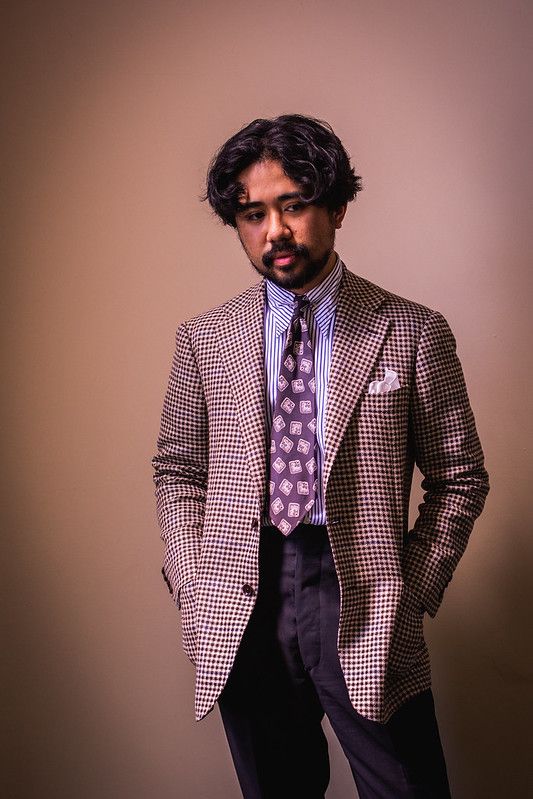
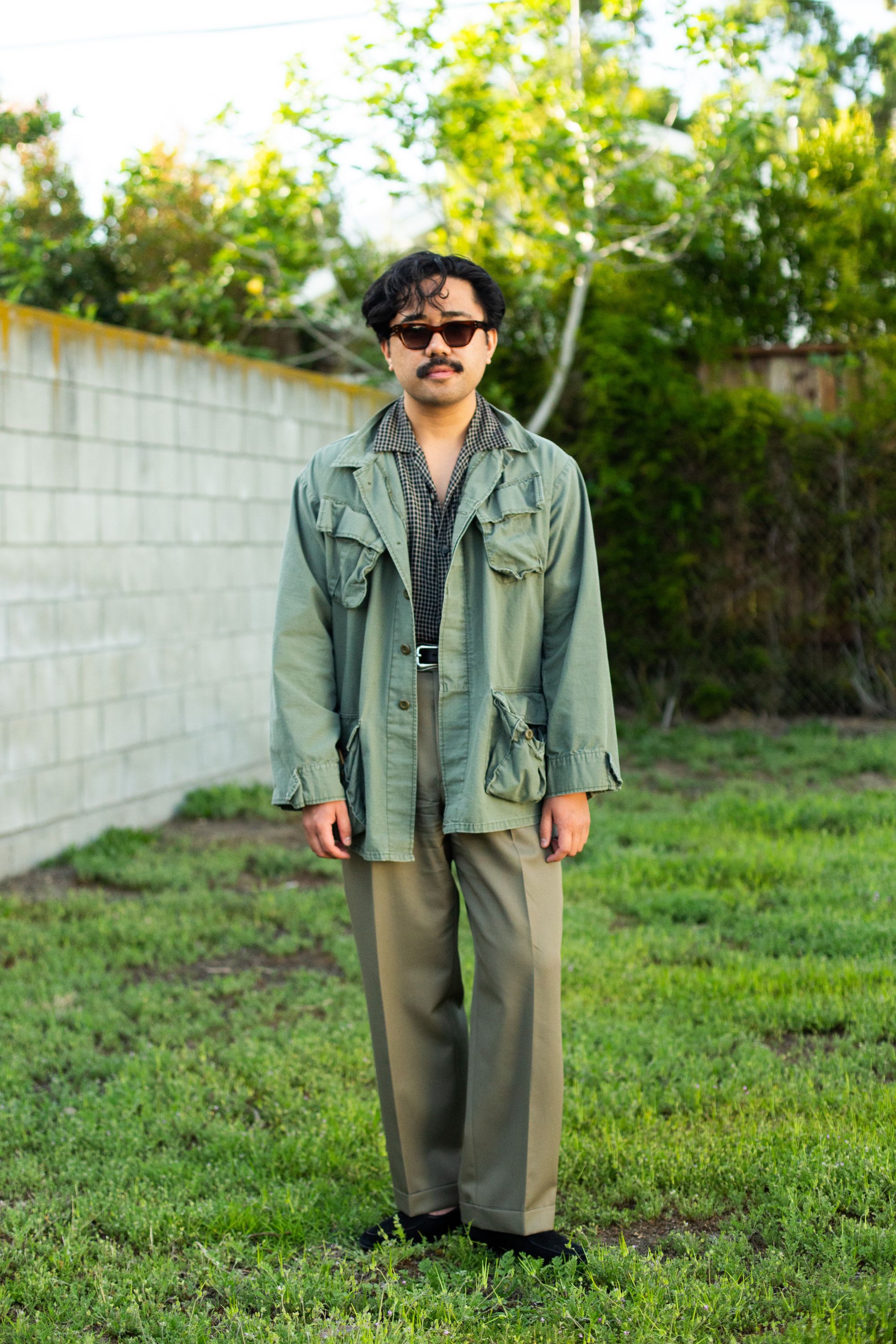
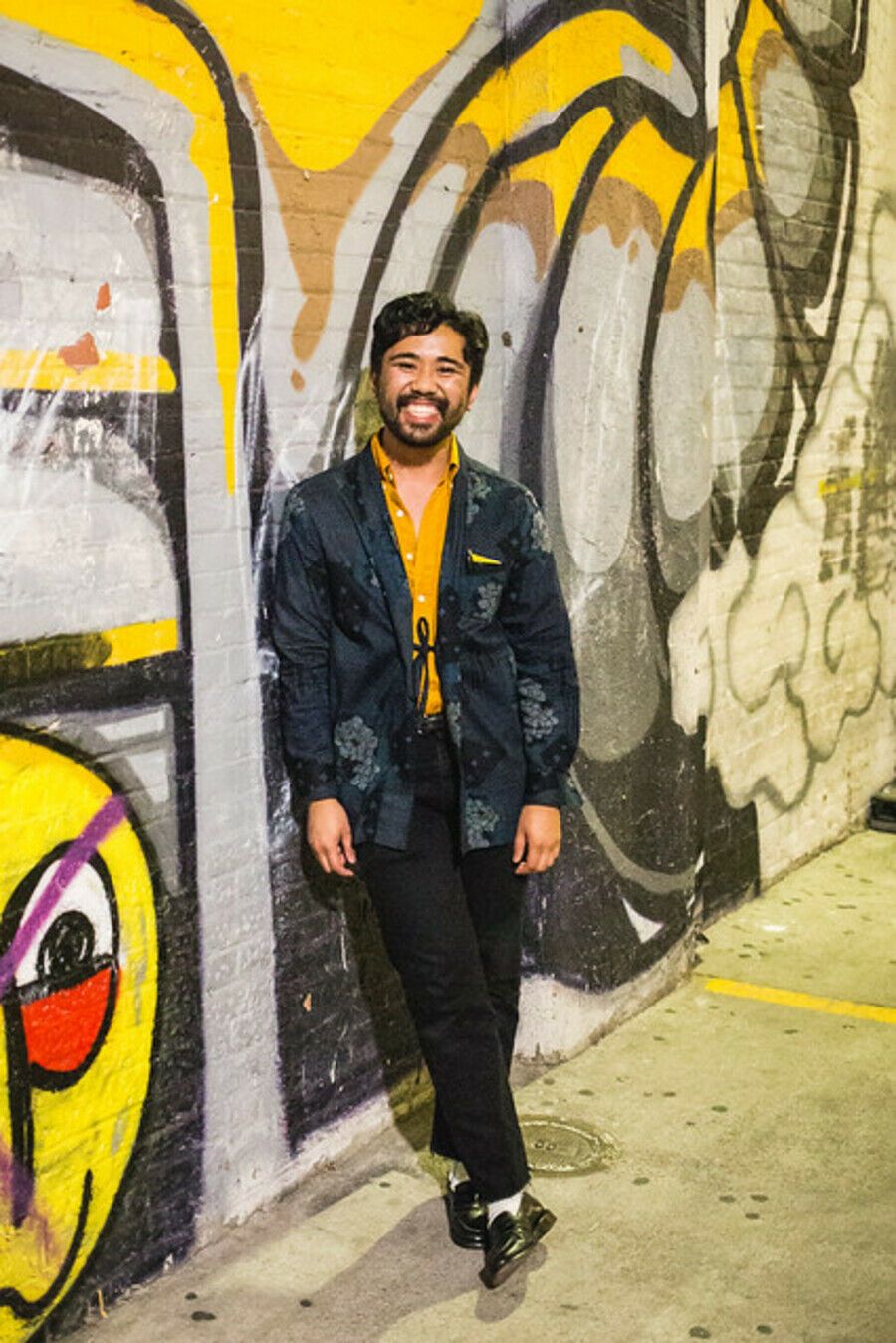
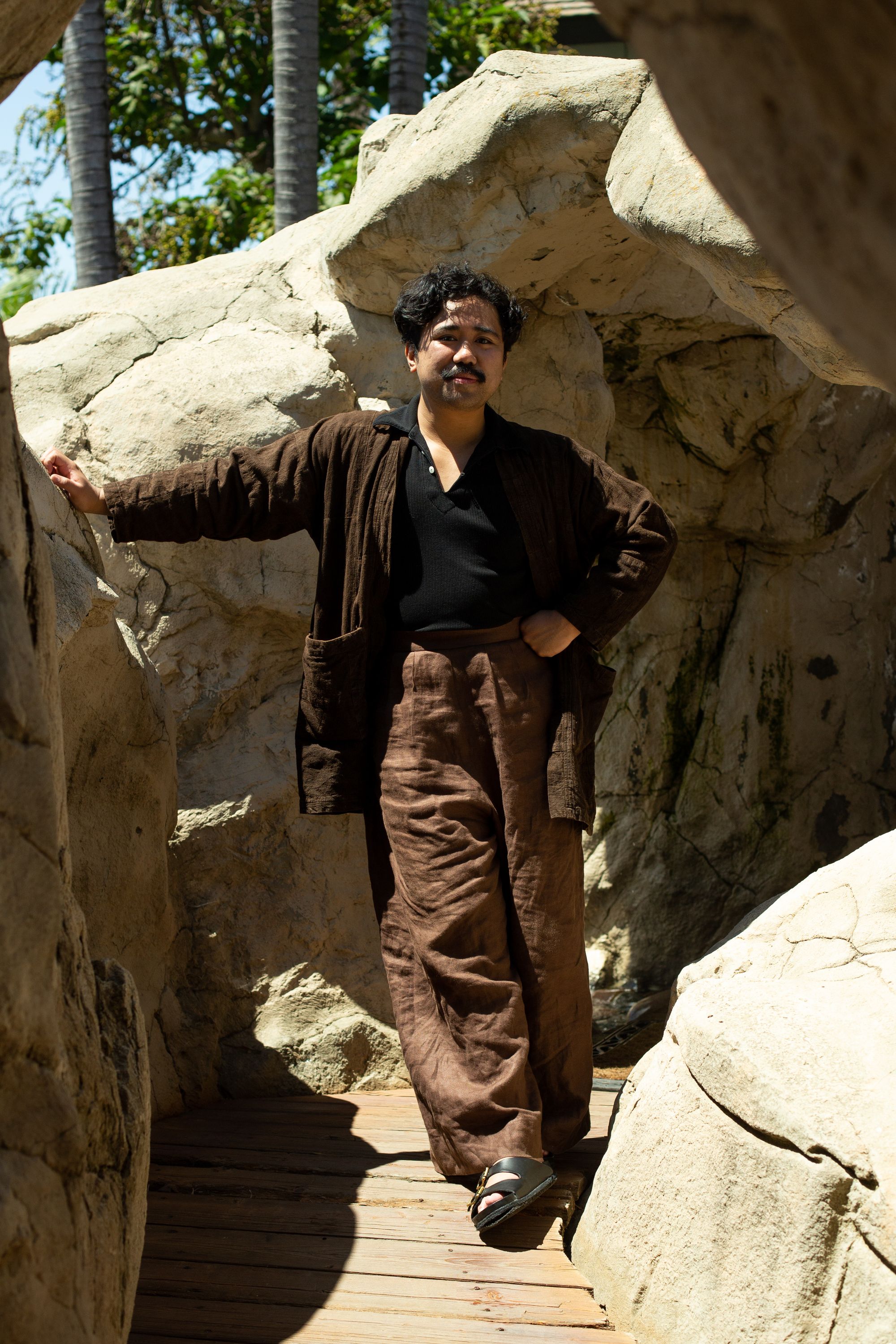
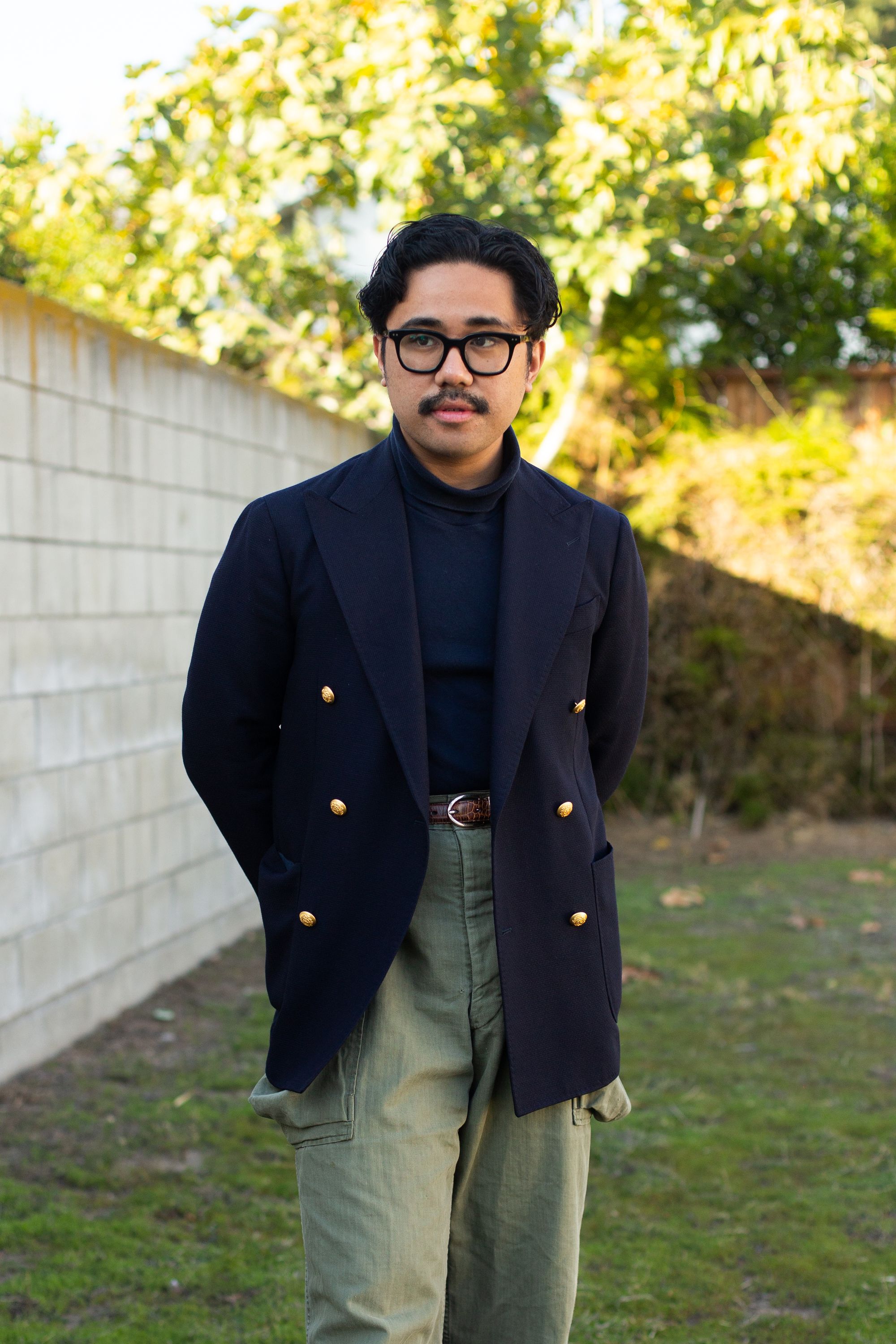
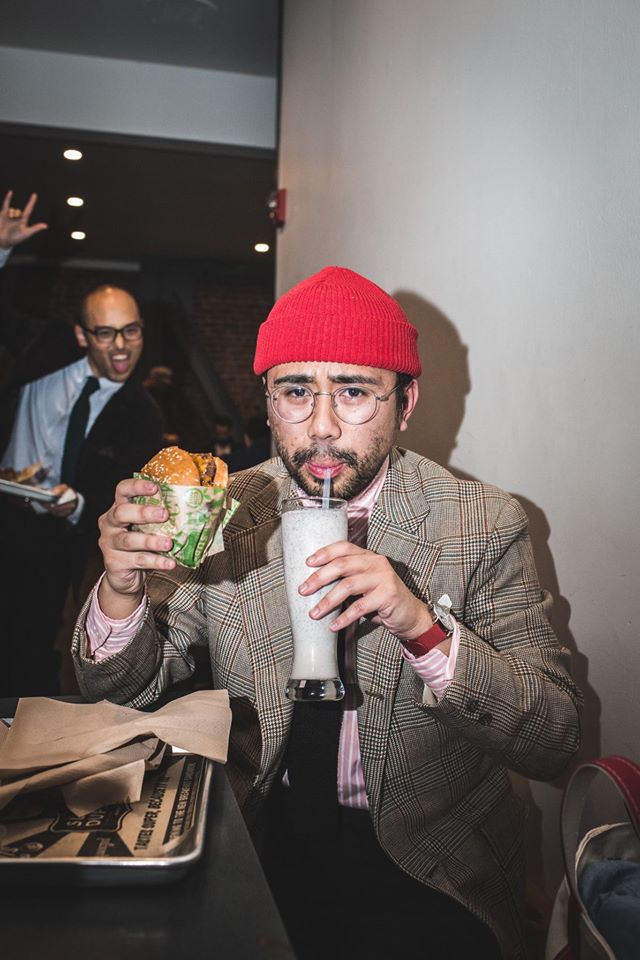
Lawrence Schlossman
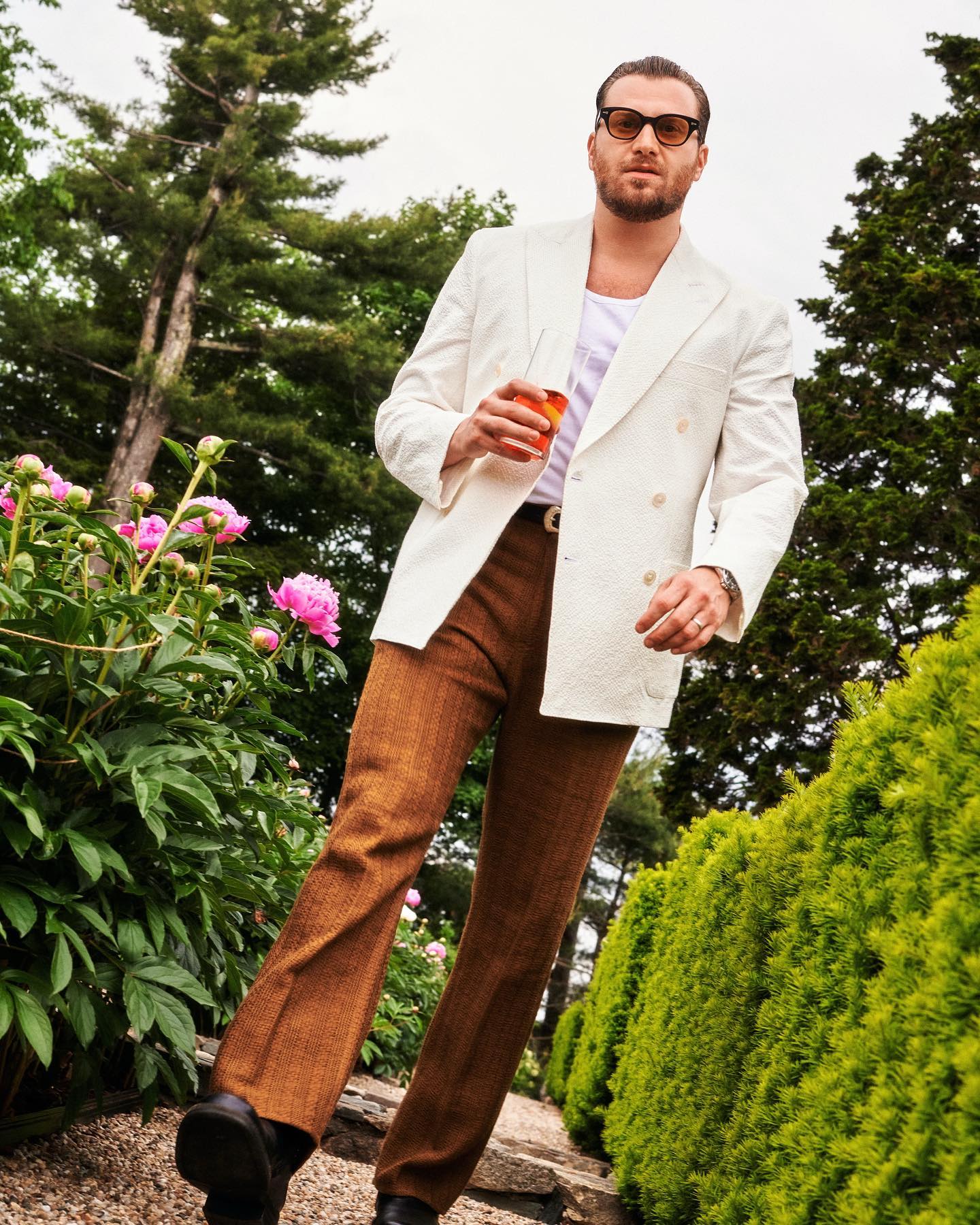
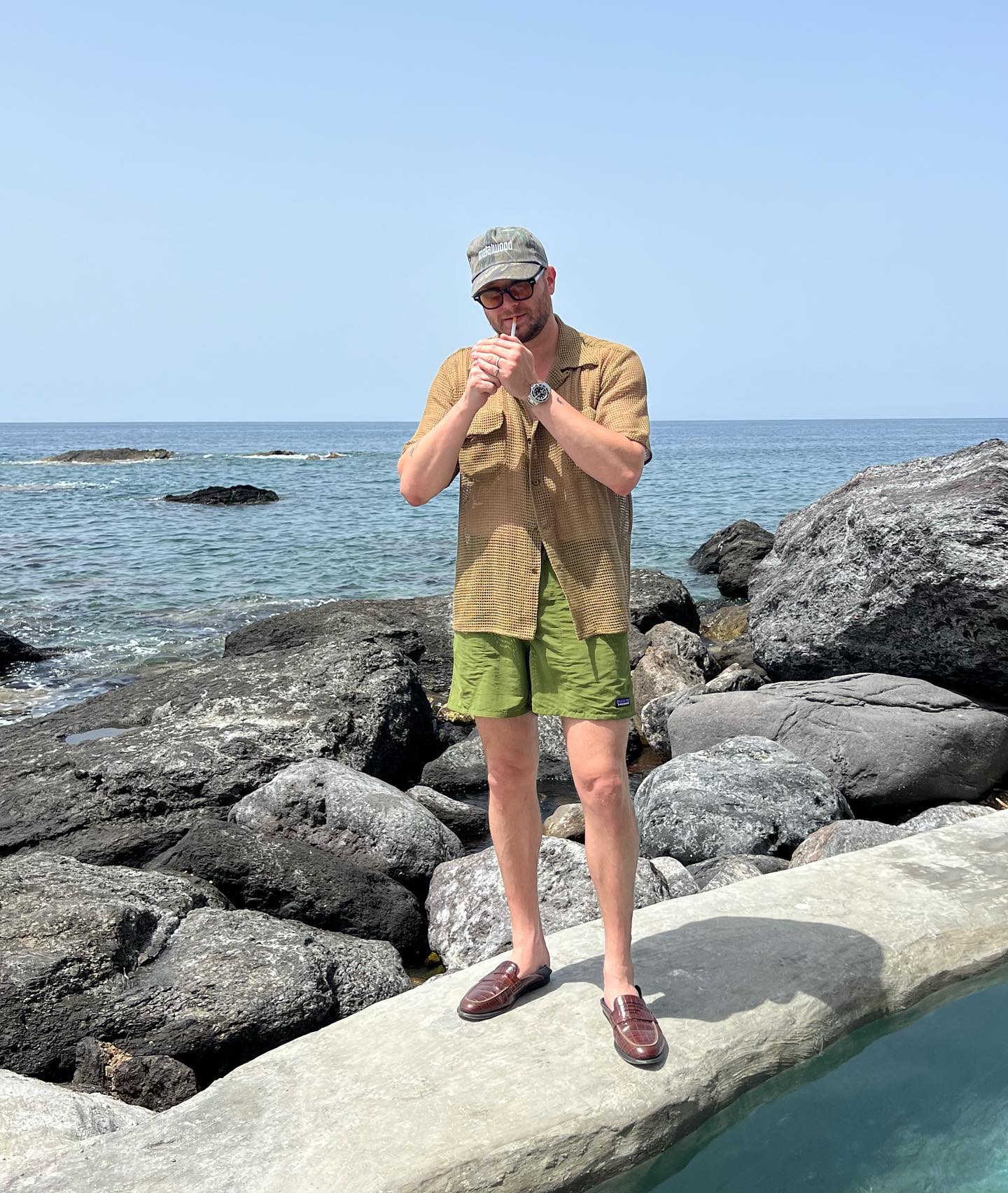
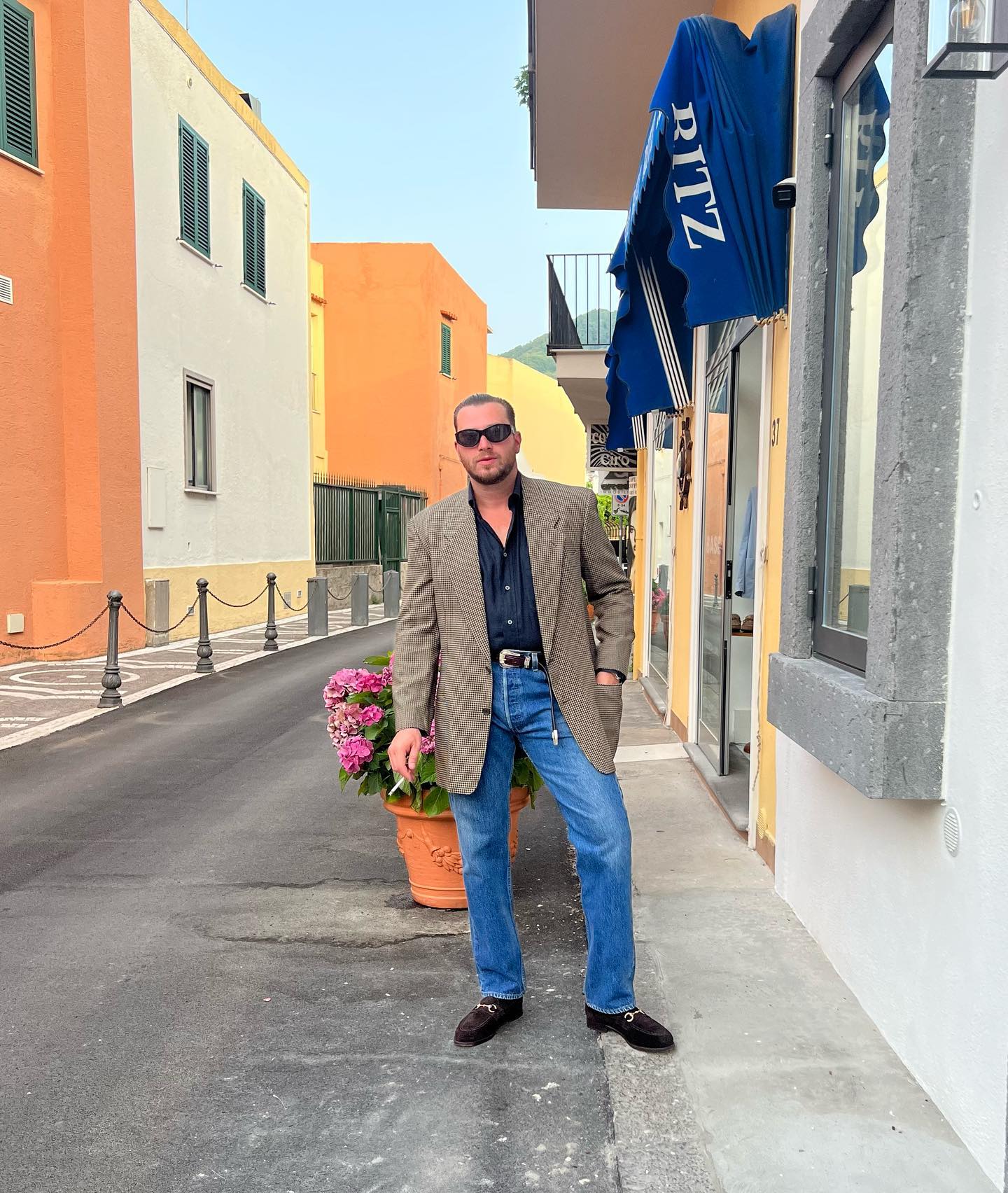
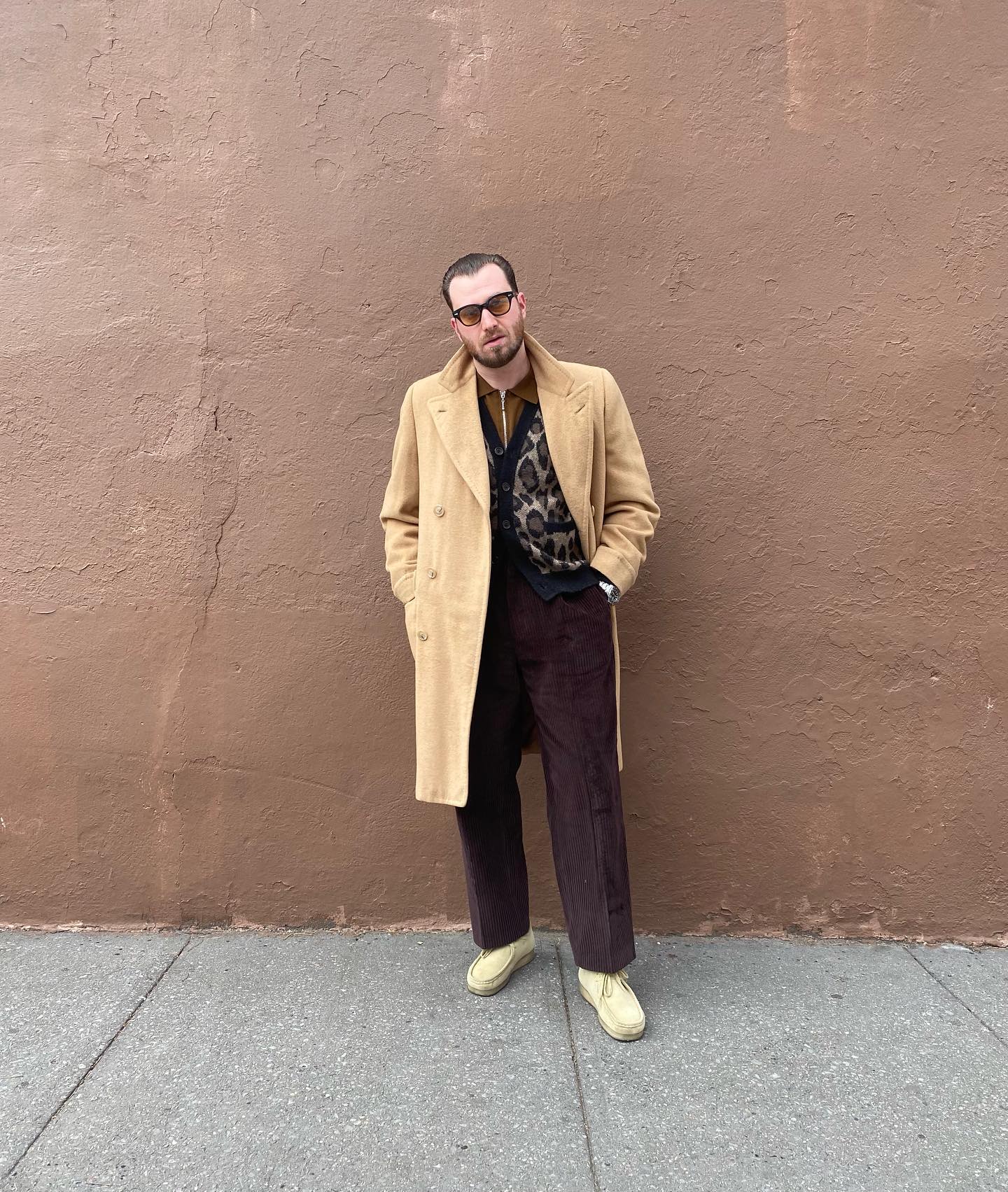
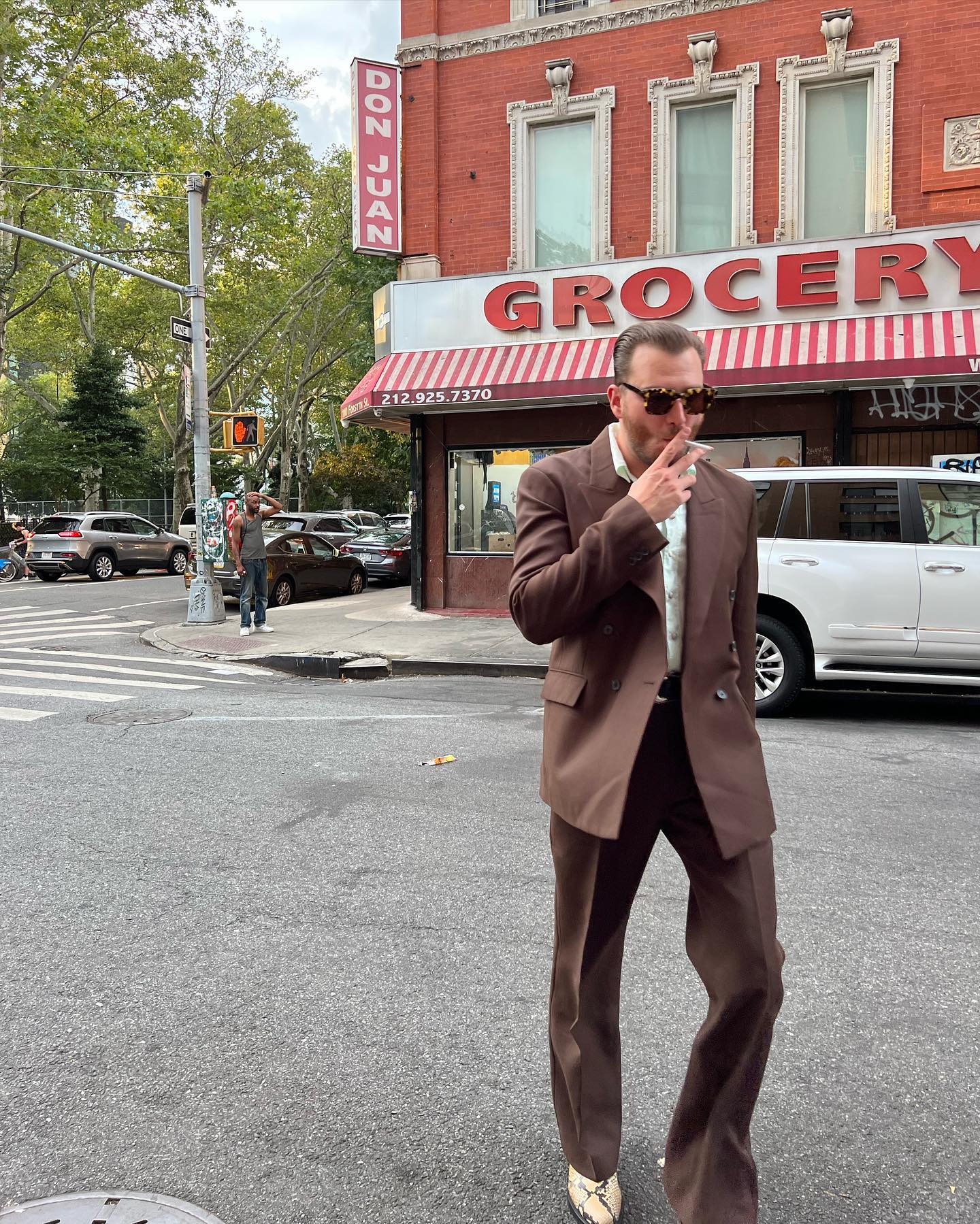
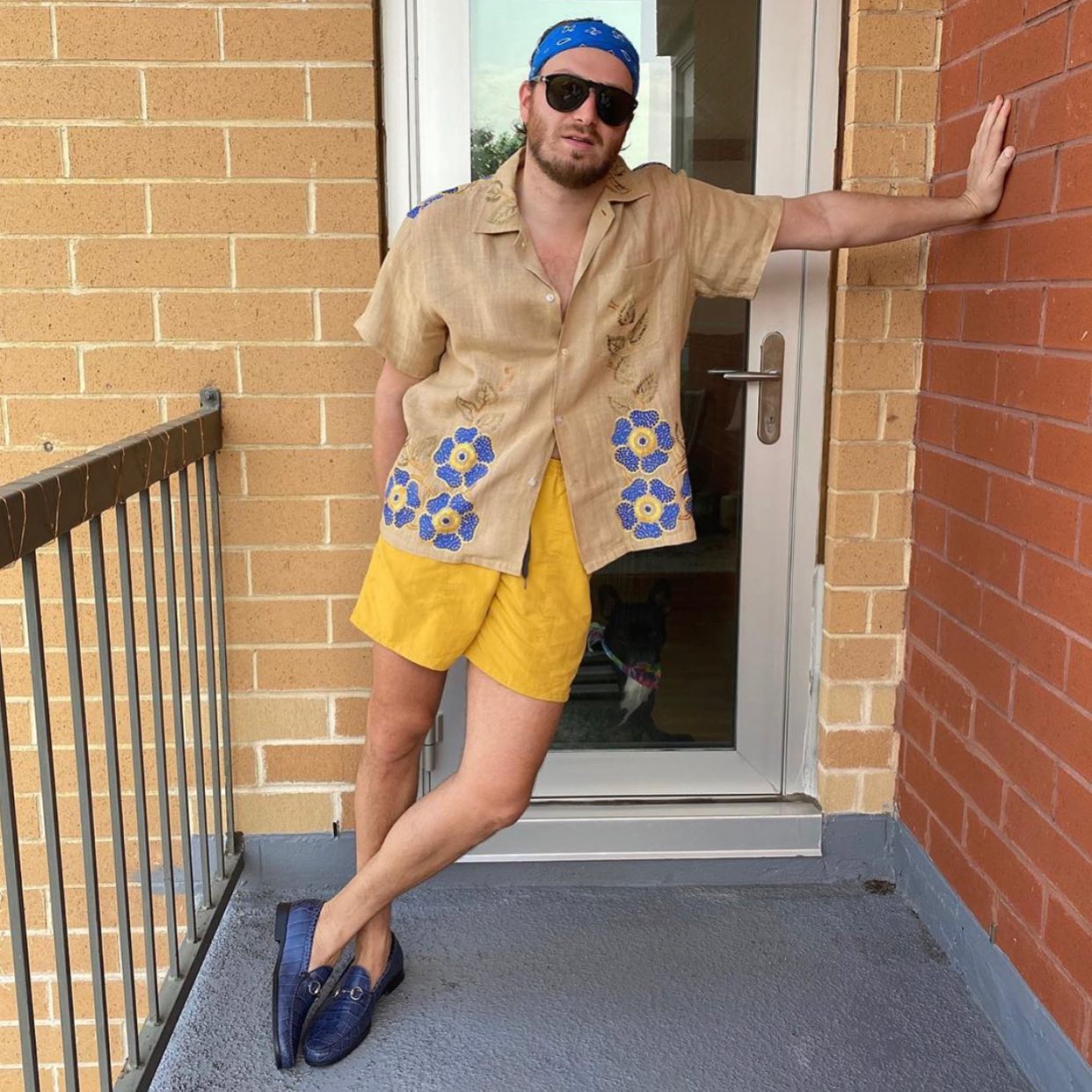
Larry is a cool guy. Known, in part, for Throwing Fits, his broey podcast with James Harris, Larry has a long history writing and talking about menswear. So you might be surprised to hear that he's not really concerned with dressing for outward expression or being understood. Rather, it's an internal process.
"I'm getting dressed to feel good inside," Larry says. "Externally, what I'm trying to project is confidence, happiness, or satisfaction in myself." That comes out in different ways, but he tends to find a comfort in repeating themes he knows he likes. He describes his style as "uniform dressing with a recency bias." But he tries new things plenty. Like his Levi's Silver Tabs.
I got my first pair of Levi's silver tab jeans, I'd never had silver tabs before and I found a pair that is perfect for Larry, and I've been wearing those every day.
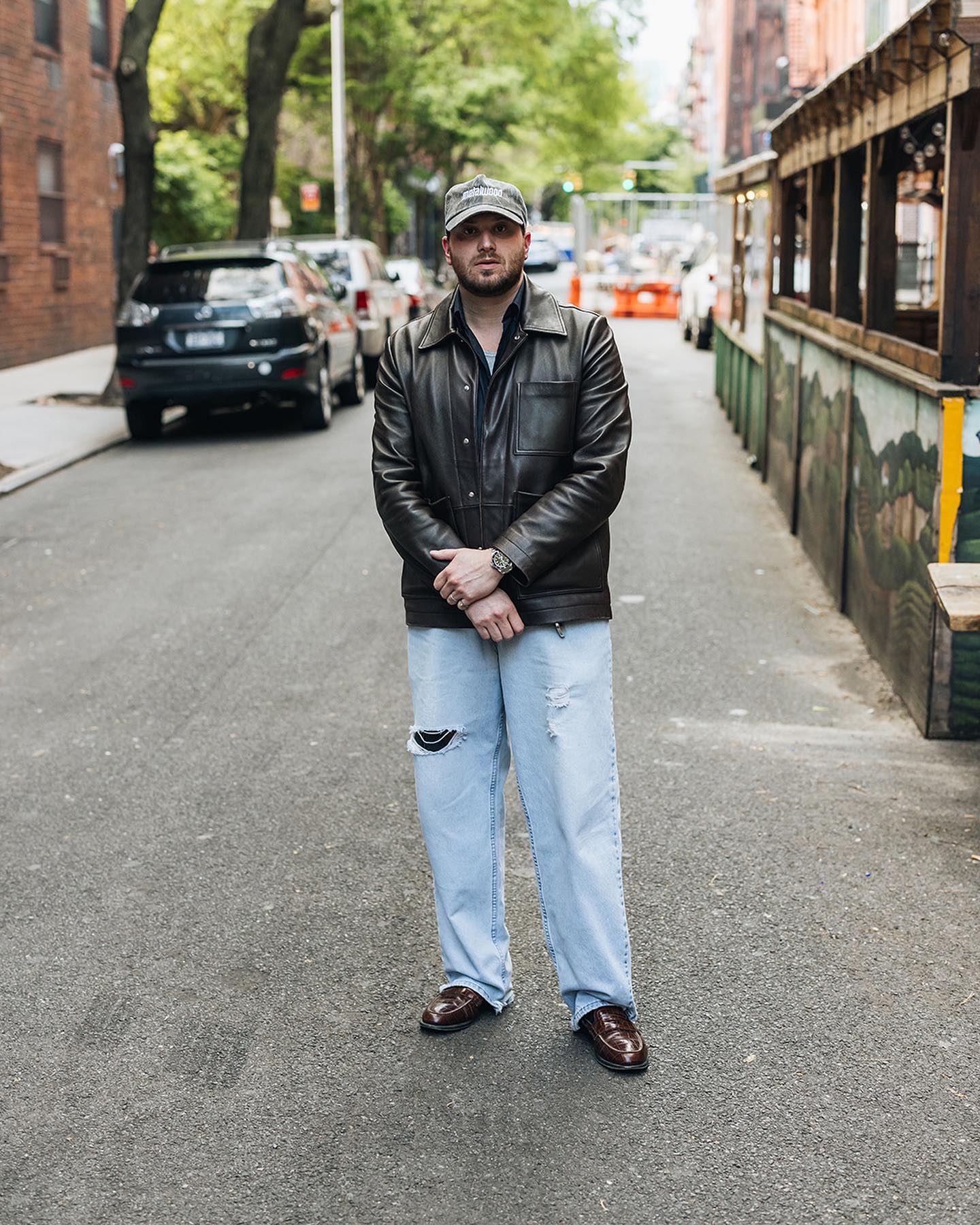
But the lesson is not "you should buy Levi's Silver Tabs and a Metalwood Stuido hat." If you read that, you're not paying attention.
"I hate, with a passion, recommendation culture, especially with how it has evolved now, with this ID, ID, ID. I think it is detrimental to the foundational element." James makes fun of him for repeating the same advice again and again: "the ultimate seed of life in this world is personal style. I love trying new things."
So try Levi's Silver Tabs, try a few different hats. Try different loafers, try black and brown, try things you wouldn't think to try. Figure out what feels like you you.
This can be hard, but it's the whole art of dressing well. "And there's an emotional gambit... Whether it's a trend, or something you thought you'd never look good in... I love trying new stuff. Stuff that I love, I carry it with me, and stuff that I don't, I'm happy I tried it."
That visceral love of our little fucking hobby, for me it really is... when you say forever, that can be daunting, but it's exciting.
As for how others feel about his style: Larry has friends in the industry, but he doesn't seek their approval. This can be complicated, since the way he personally chooses to dress has a "bizzarre symbiotic relationship" with his job. "If one day, it were decided that Larry dressed like shit, objectively, that would be a problem... It's kind of important that people who listen to the show don't think I look like shit, but really, at the end of the day, I do not care." He has a financial incentive to keep looking cool, and he enjoys the positive reinforcement, but the deeper love of clothing drives him to dress for himself, and just hope the world appreciates it.
And not everybody loves his style. In fact, he says he lives with his biggest hater—his wife. He doesn't think that's a problem at all:
If your girl hates your fit, that's how you know it's fire.
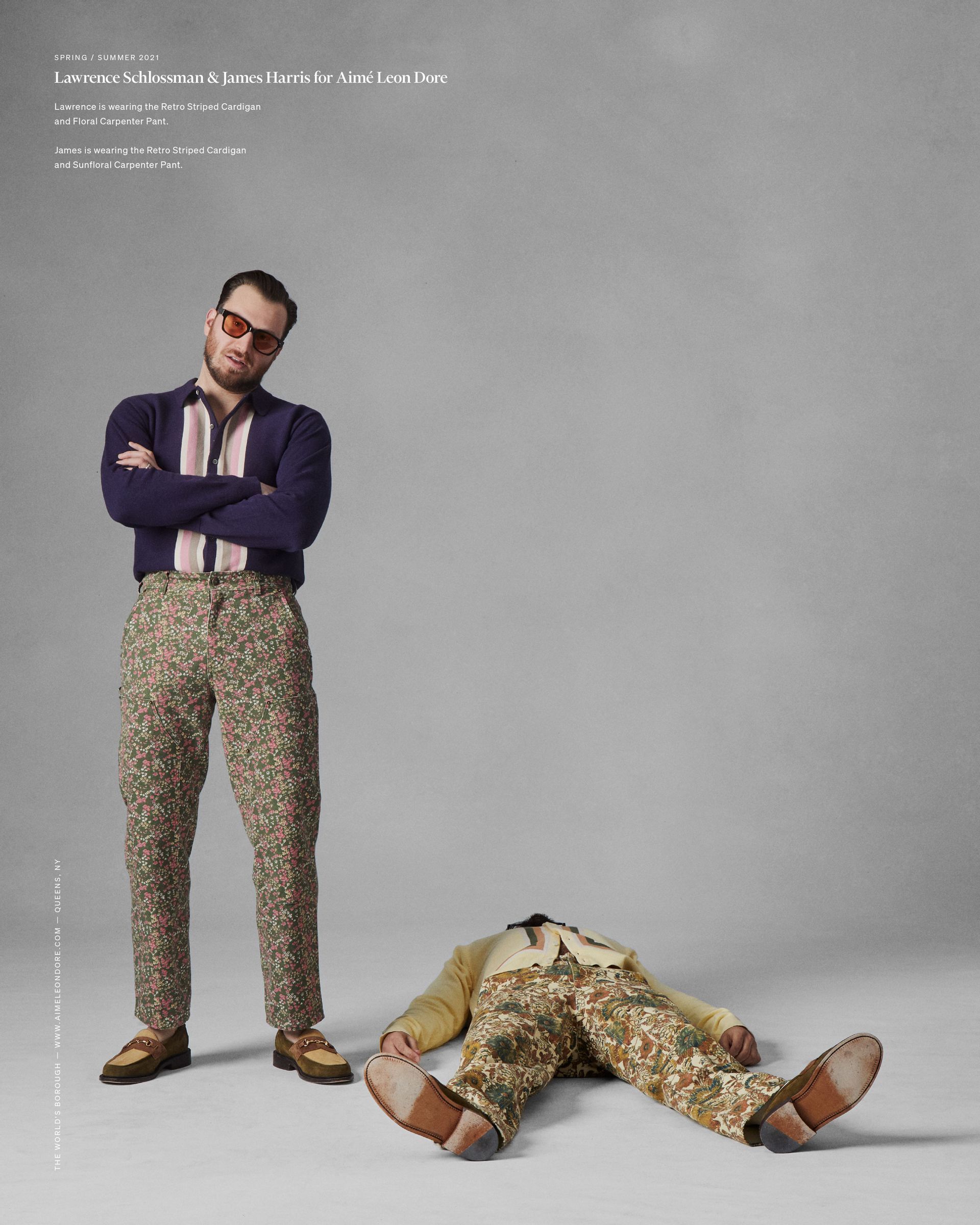
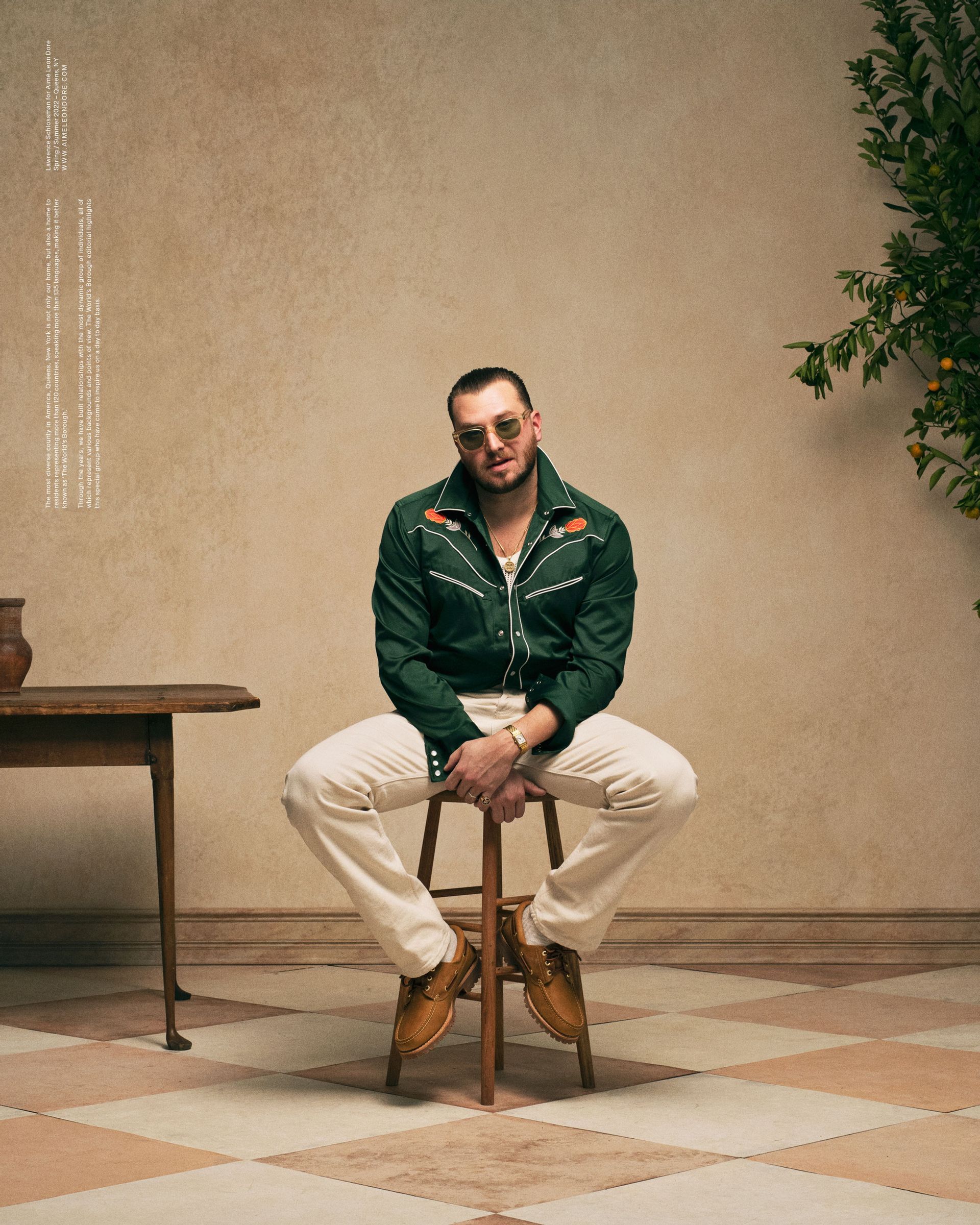
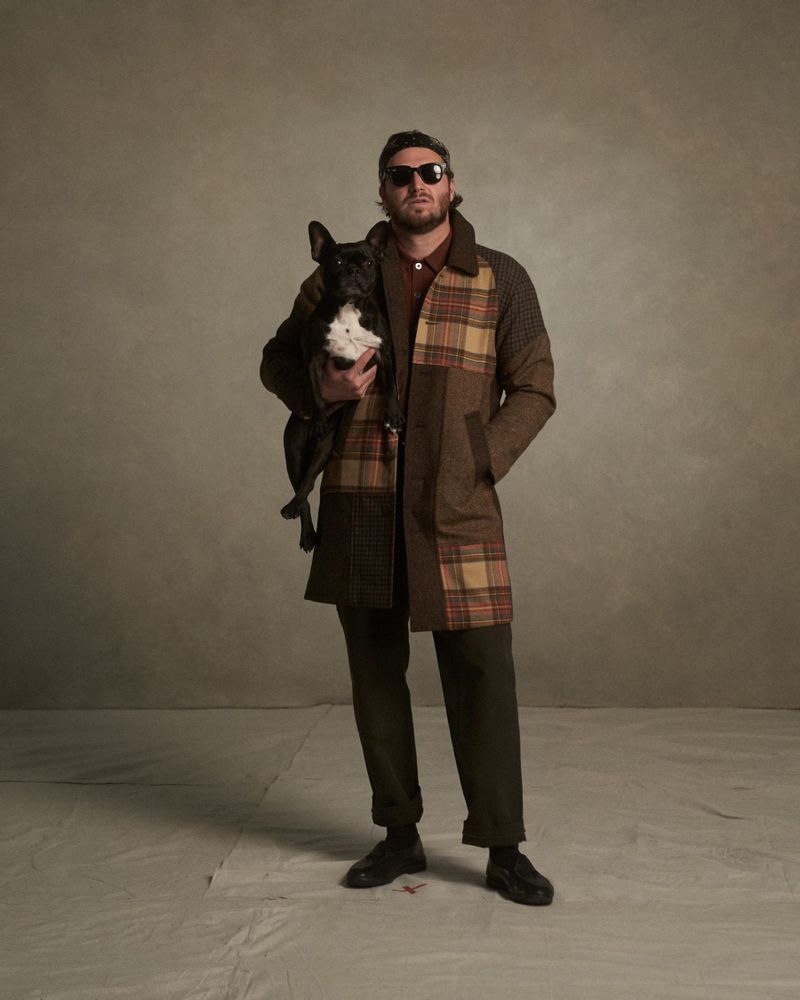
Charlie Caulfield
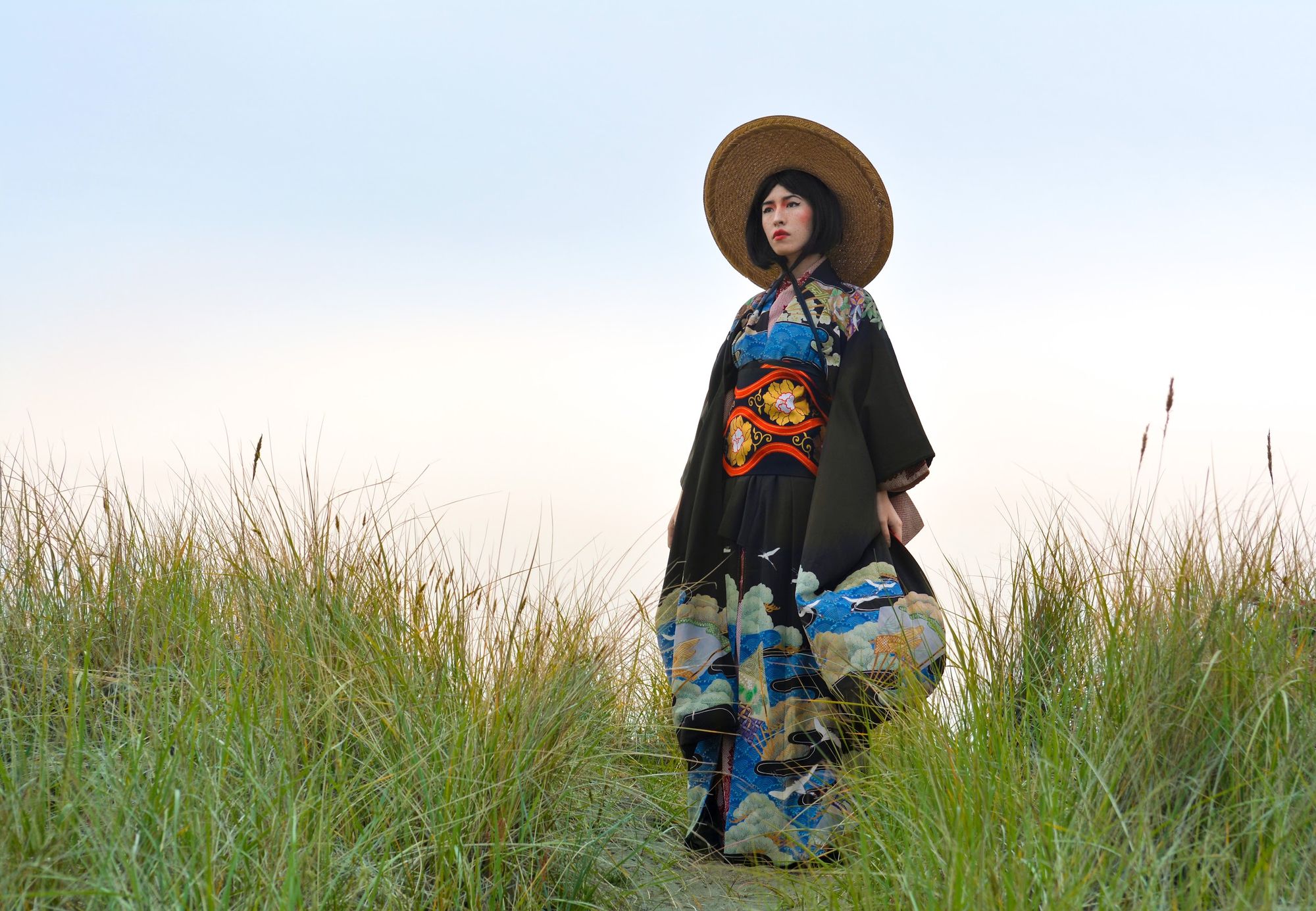
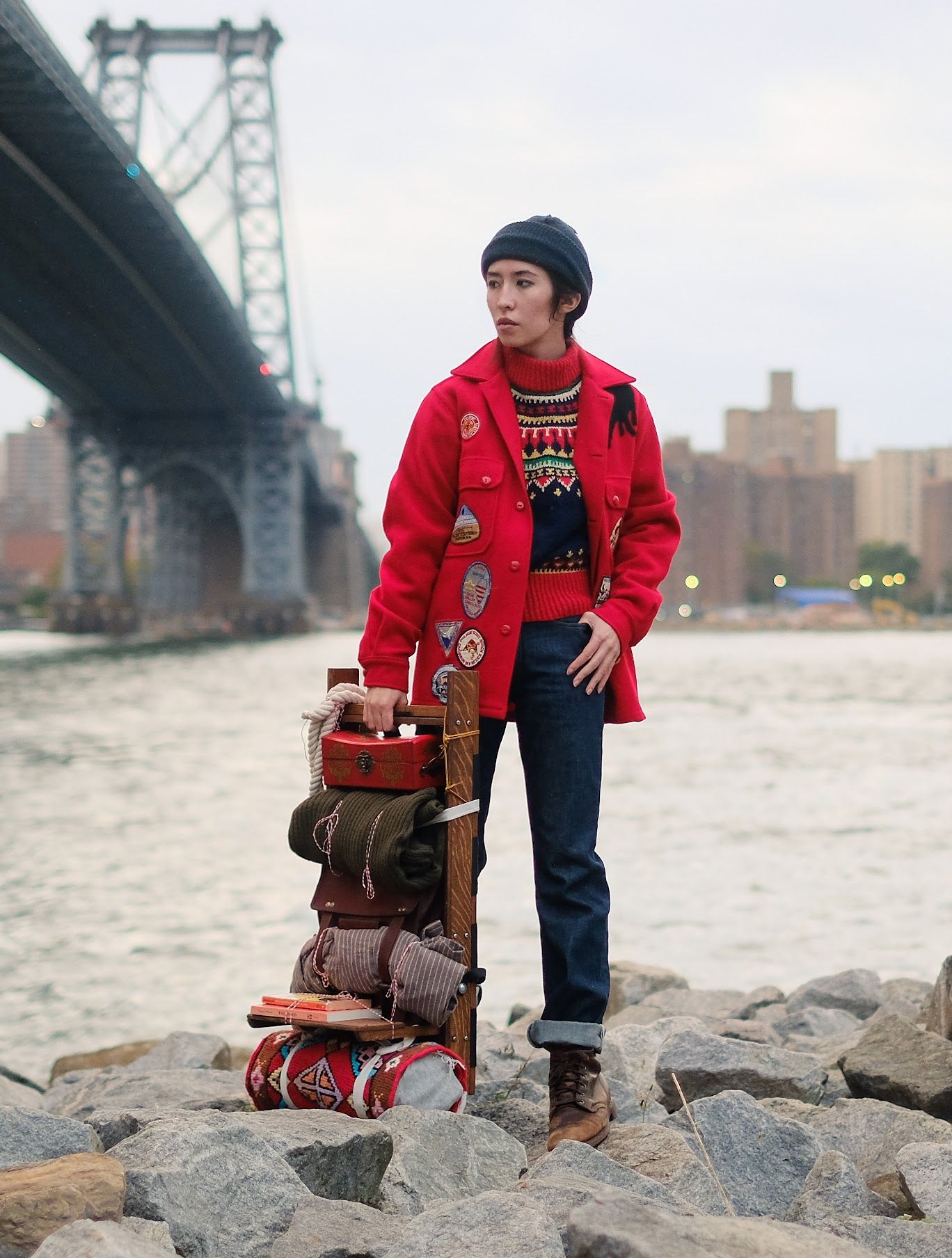
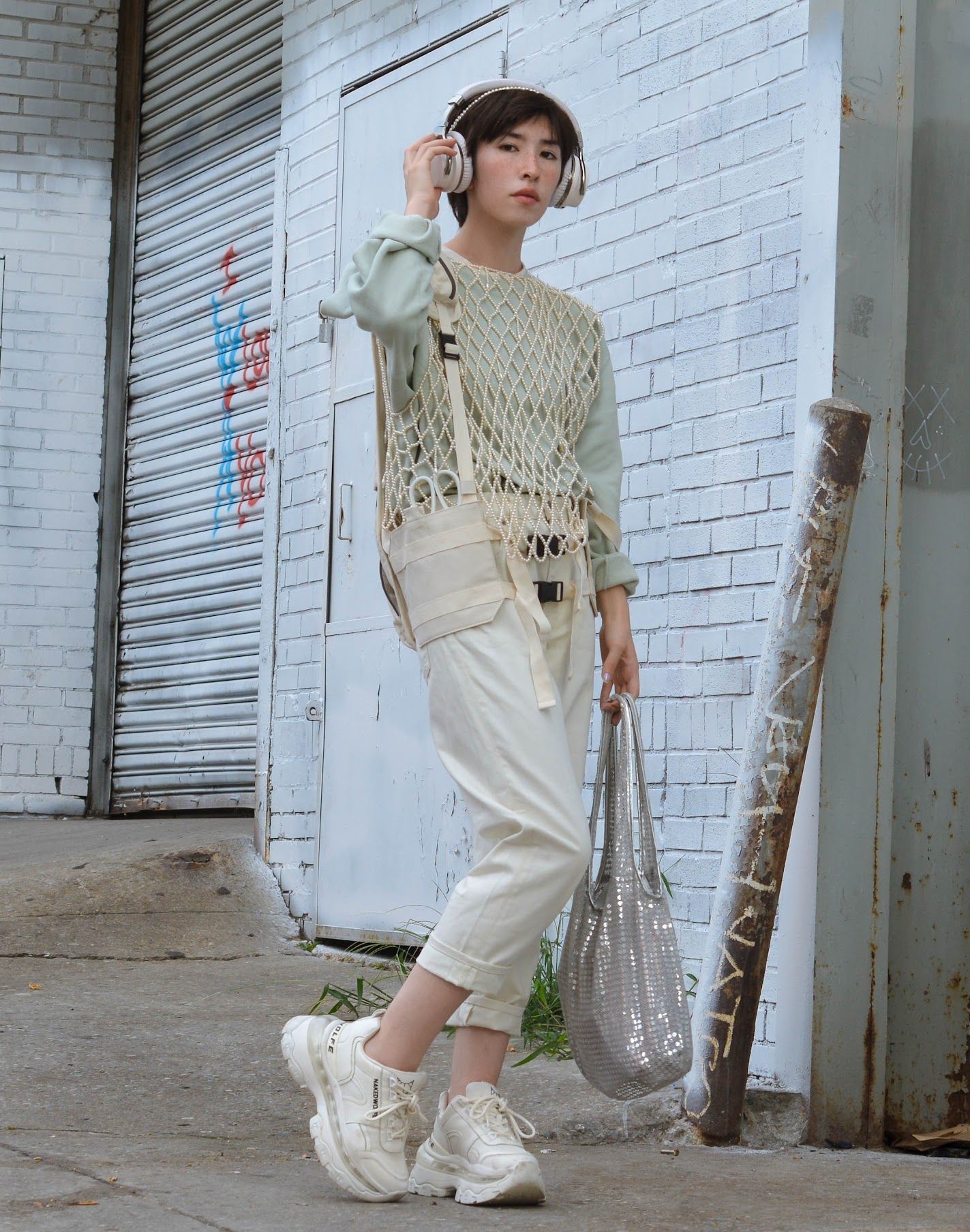
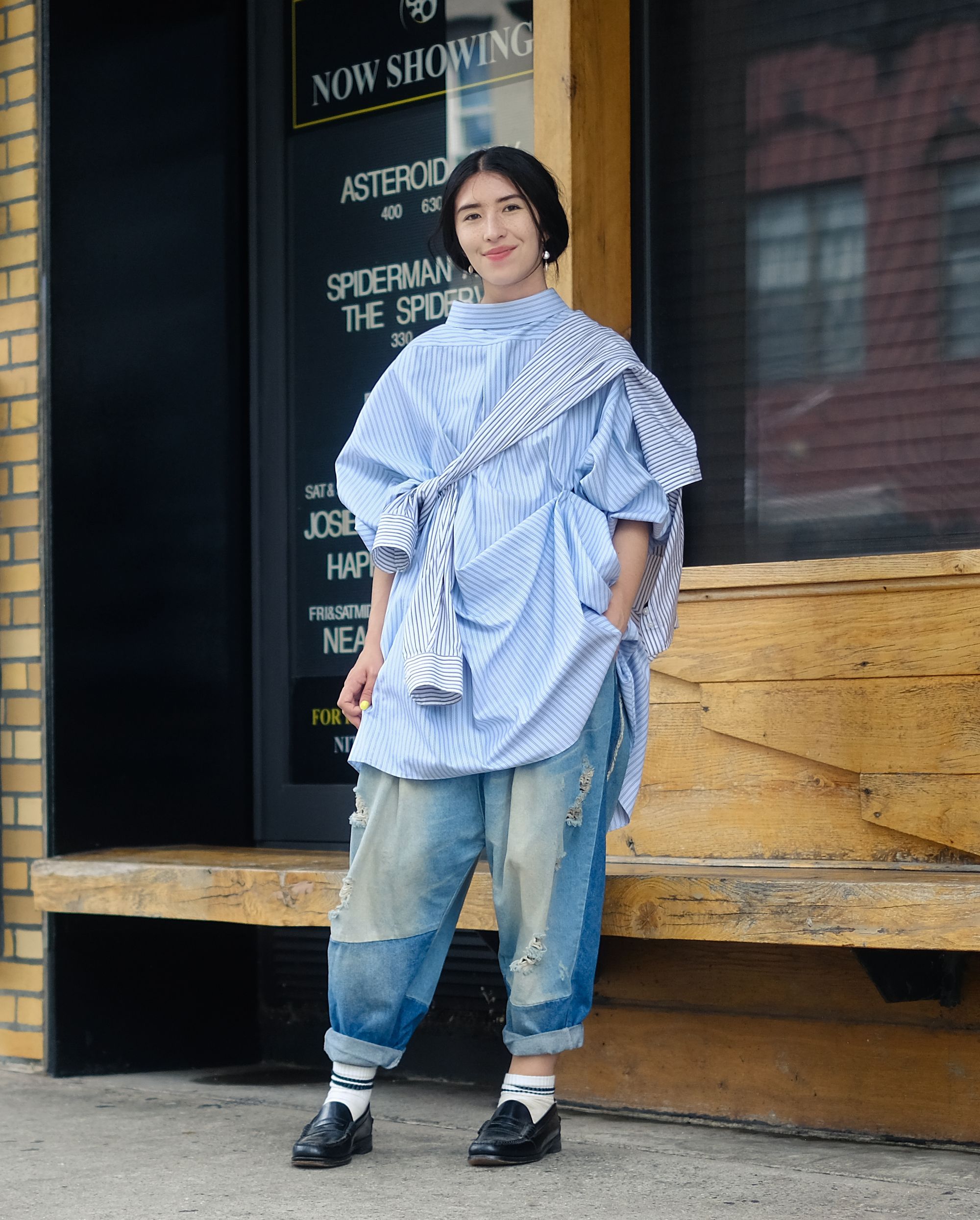
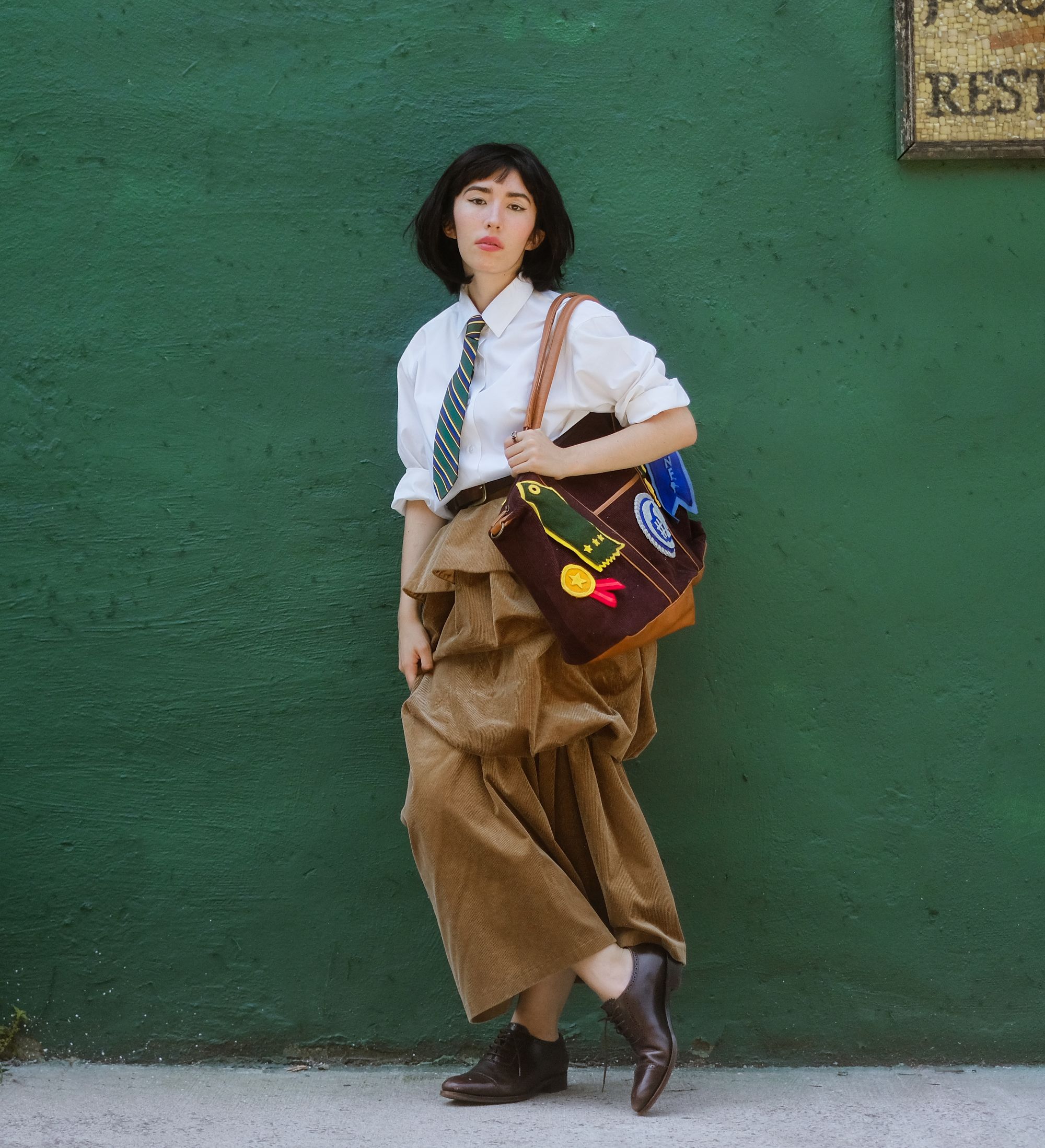
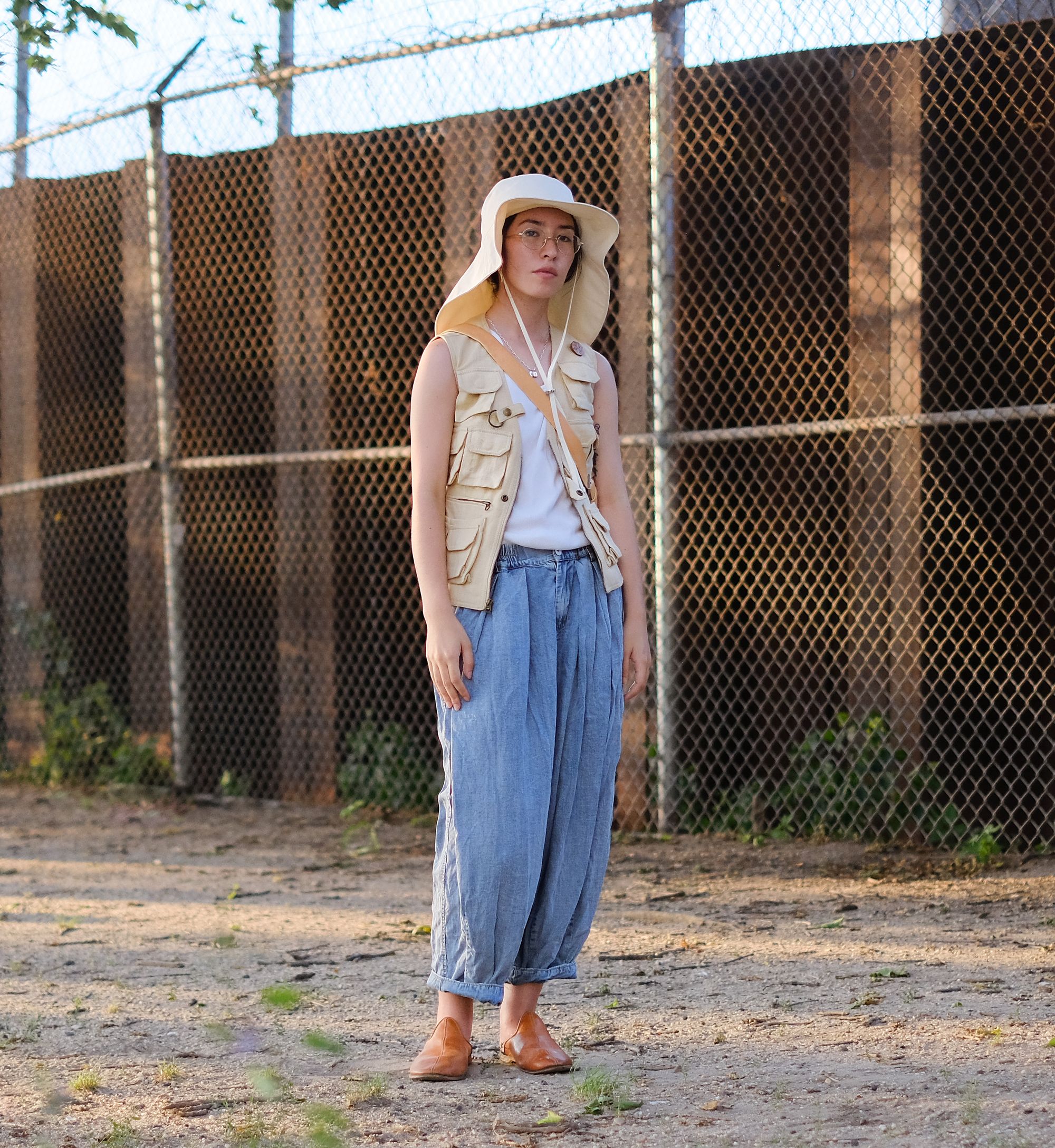
Charlie's style is hard to pin down for a few reasons. On instagram, go by "the hero of a thousand faces." Partially a reference to Campbell, this quote is more a reference to Charlie's journey though their gender and style. "I identify as genderqueer and I am influenced by a wild amalgam of things from my cultural background, personal experiences, and local fashion scene, and thus have never fully committed to one style identity." Some people describe their style as being similar to "wearing a costume" or "playing a character," but to Charlie, it's all authentic.
[I]t means doing my best to physically represent my authentic self as it changes from day to day.
That might sound hard, but it comes naturally for them. "Because I dress in so many different styles, it makes shopping easy. I only buy secondhand these days, but I just look for special (usually vintage) statement pieces that I can build an outfit around." There's no use being too picky. If it's magic, they will make it work.
Because Charlie has so much fun with wacky, special, loud, fun, magical, vintage pieces, and combines them in such a wide variety of ways, there's no need for any baseline or standard. Every outfit can be a bold reinvention.
I don't personally believe in basics or staples, I'm a maximalist at heart. Why can't an outfit be all bangers all the time?
And they make some pieces of their own, too.
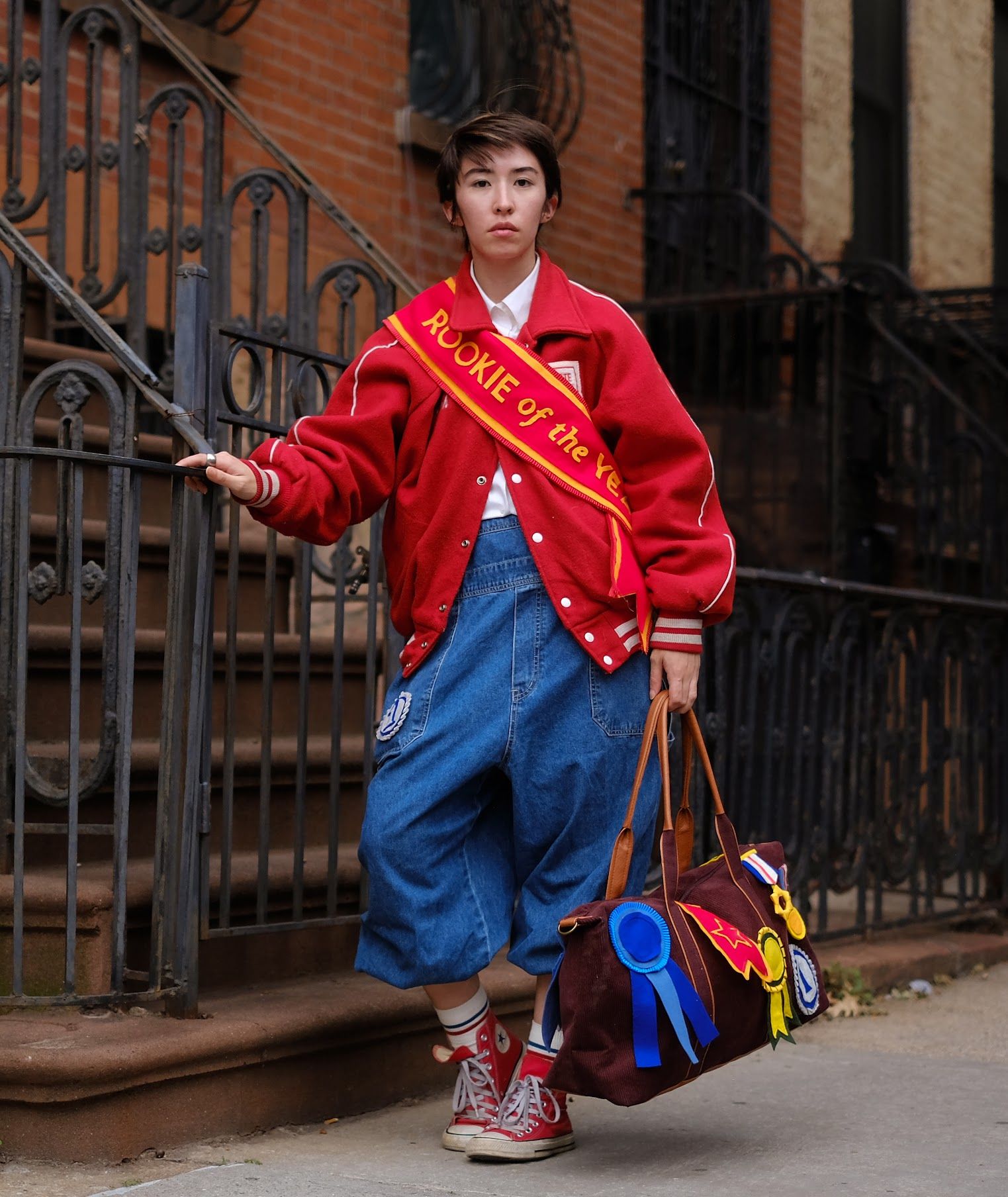
And again, Charlie doesn't care if anybody understands their style. "It's validating to be clocked as male when I present that way, but otherwise, I don't think much about it." They have taken not caring to an extreme in the past. "As a kid, I showed up to school in a velvet cape and knee-high Converse. As a teen, I wore 1950s prom dresses and buckskin jackets." But it doesn't stop them.
I've been posting fit pics online for almost a decade and I've heard just about every negative thing you can hear about your appearance. I don't take it to heart anymore.
Again, it all comes down to authentic personal style. "It might sound arrogant, but to express yourself authentically and have fun doing it, particularly with something as subjective as fashion, you have to be self-assured. Otherwise, you'll run around in circles trying to please everyone."
Sometimes there are practical complications to this expression. Having twice been pregnant, Charlie had multiple occasions to deal with sudden changes to their body. Getting a suit that fits right is hard enough when there isn't a big ol' fetus in your uterus. But Charlie found a way, and, in the process, wrote the "Menswear guide to pregnancy fashion." These outfits were seamless; I met up with Charlie in person during that time and had no idea they were pregnant. I took this photo, where Charlie was practically reusing this old outfit. Seamless.
Charlie's style is changing, and their environment factors into that. "I've always struggled with dressing professionally (I would rather wear a tutu than a shift dress), but as I return to school as a "mature" student and begin to advance my career, I want to be able to express myself while still presenting in a polished, appropriate manner."
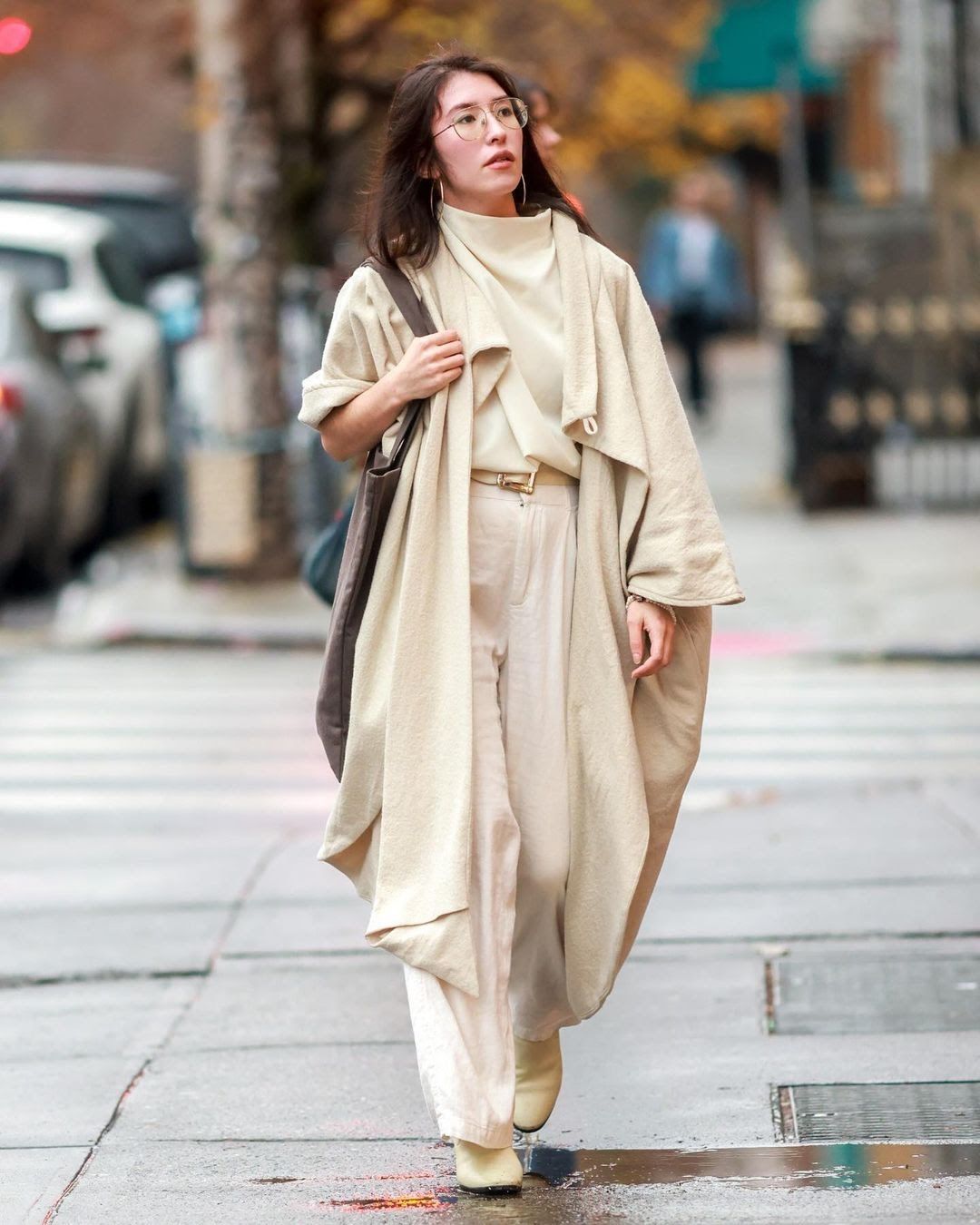
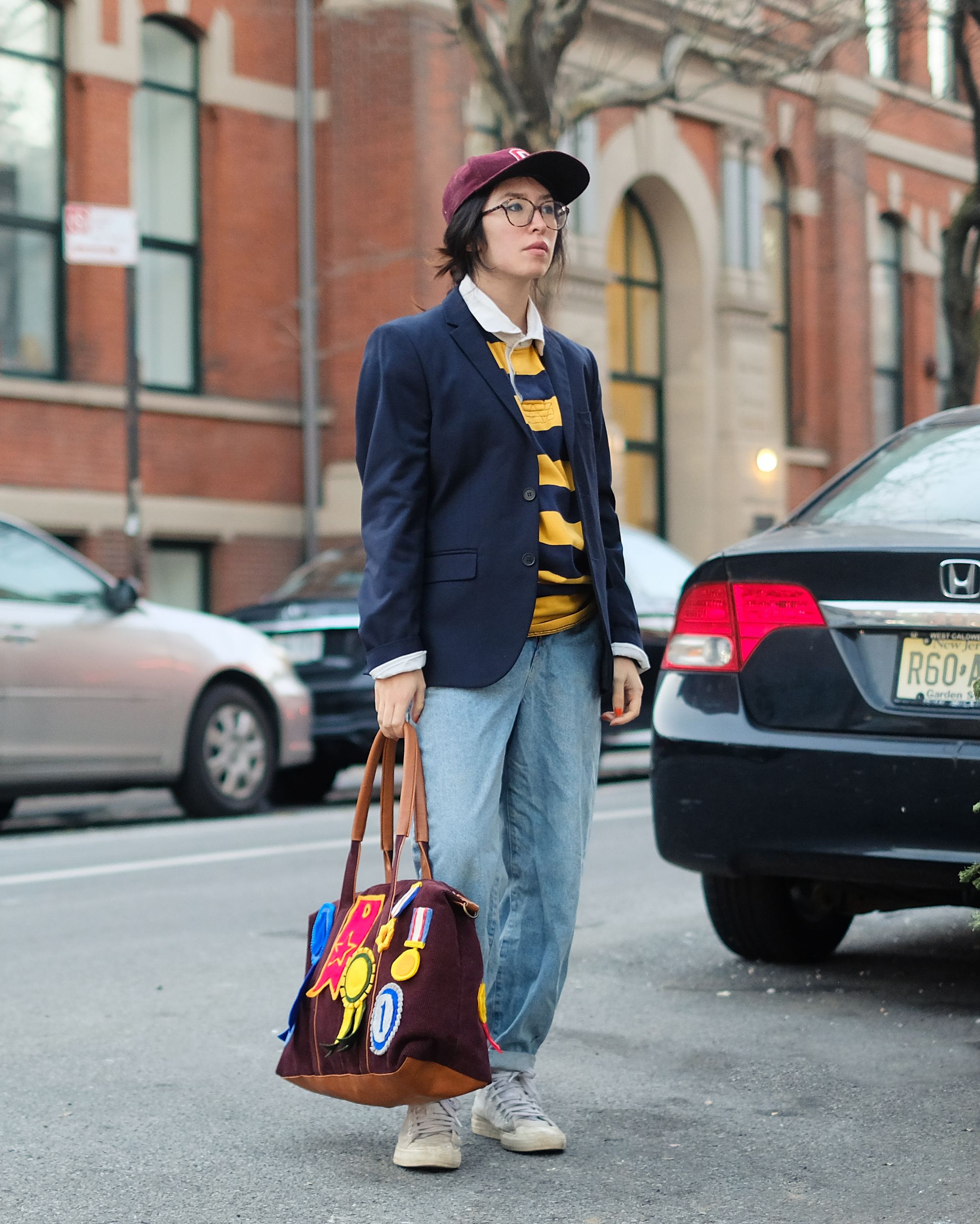
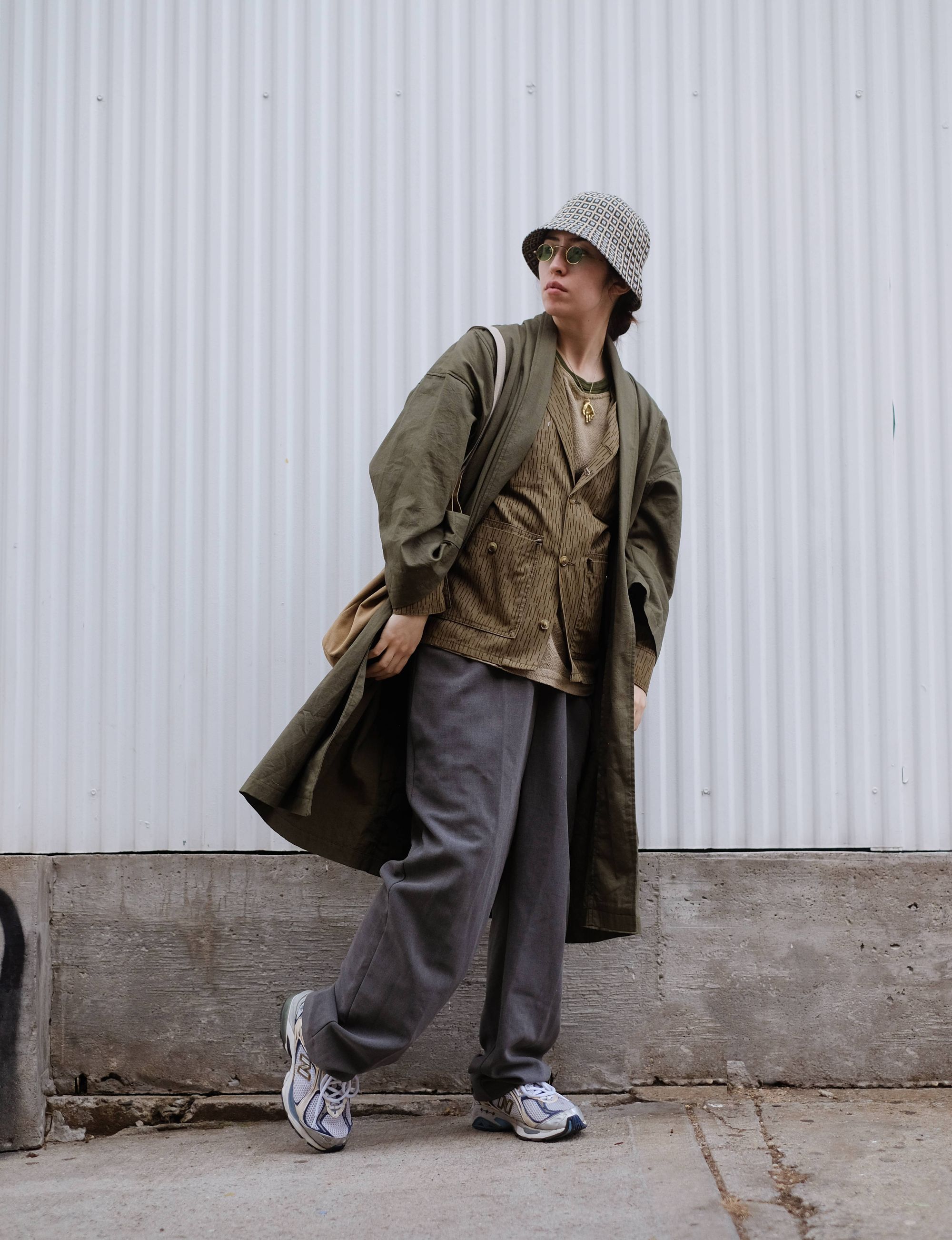
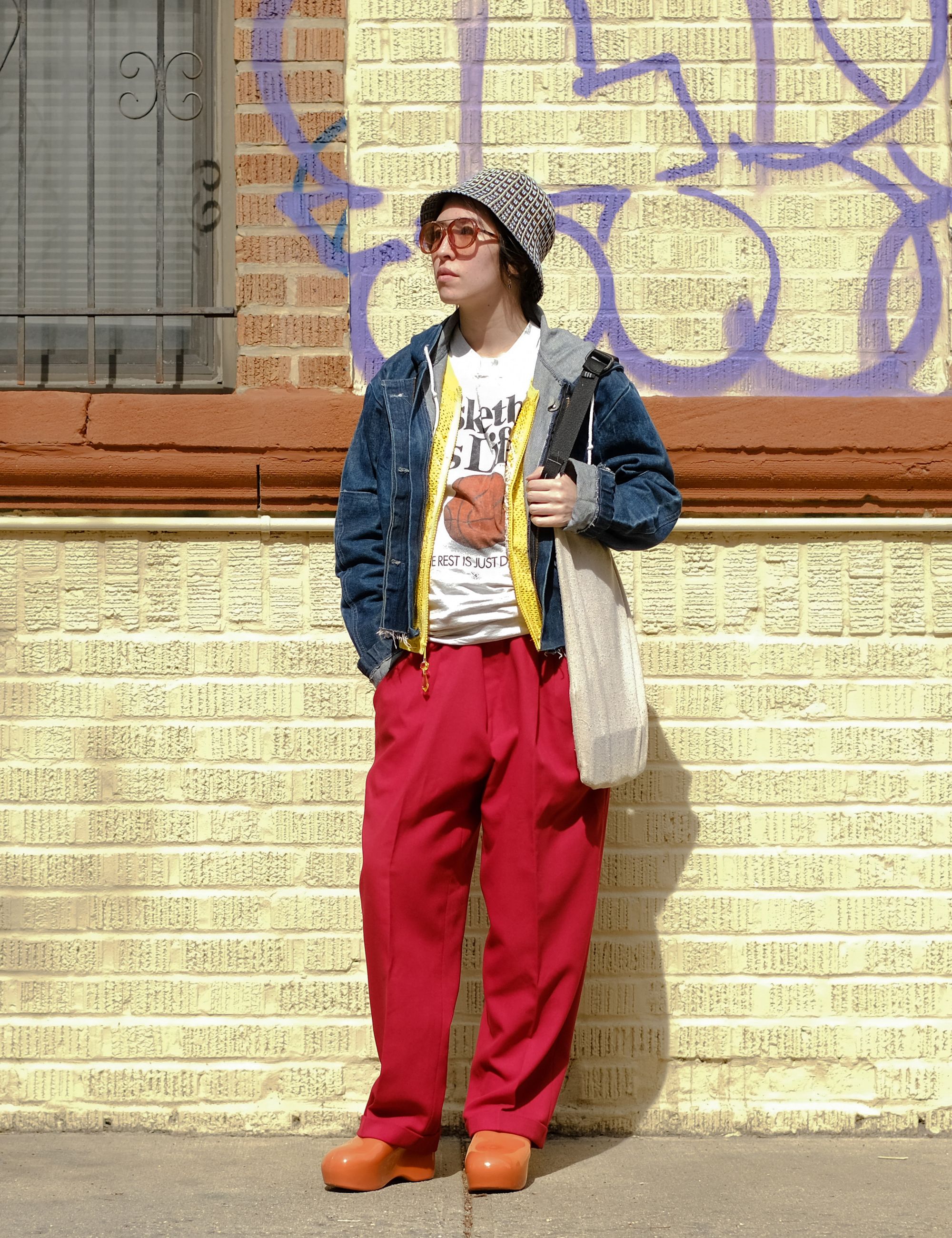
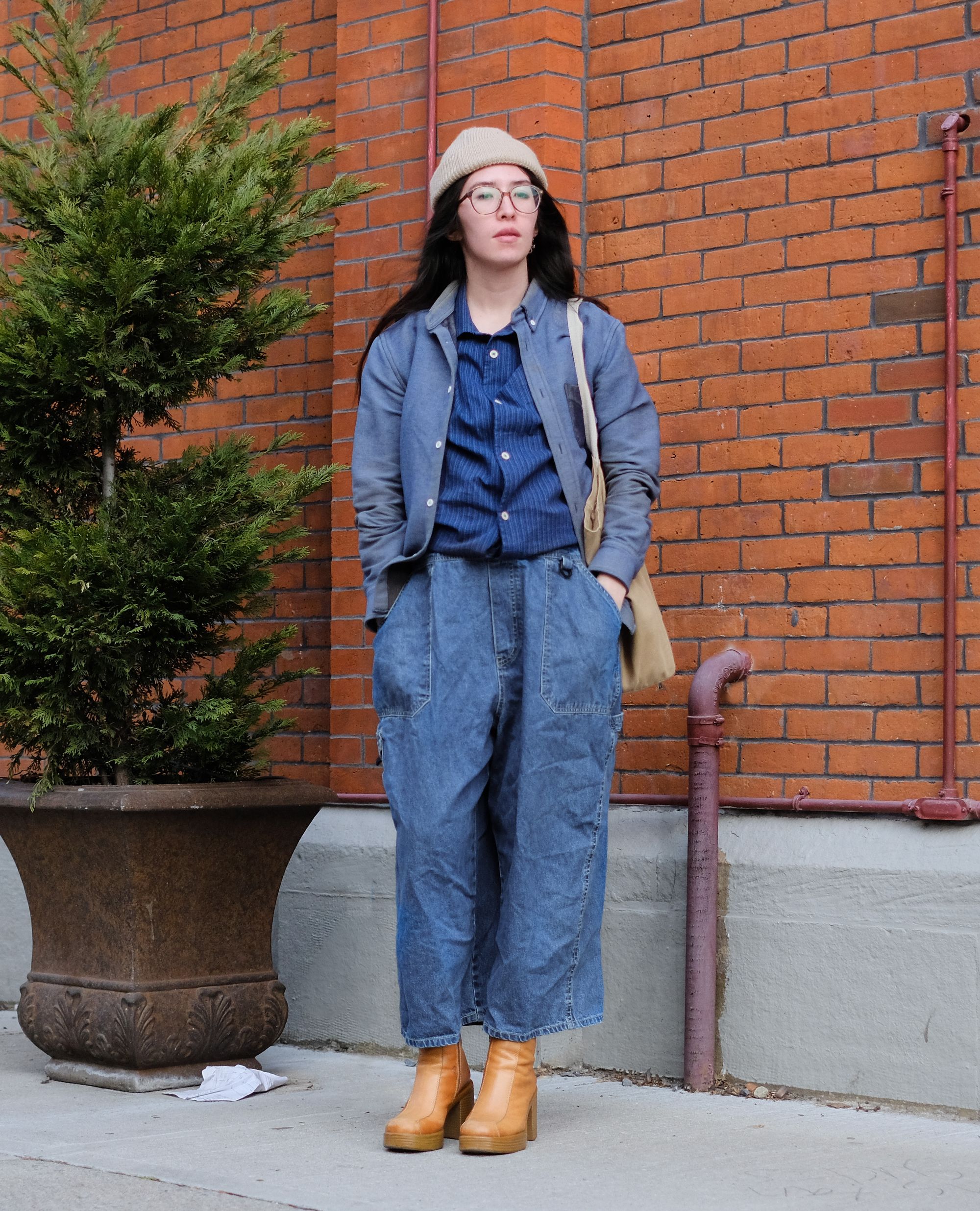
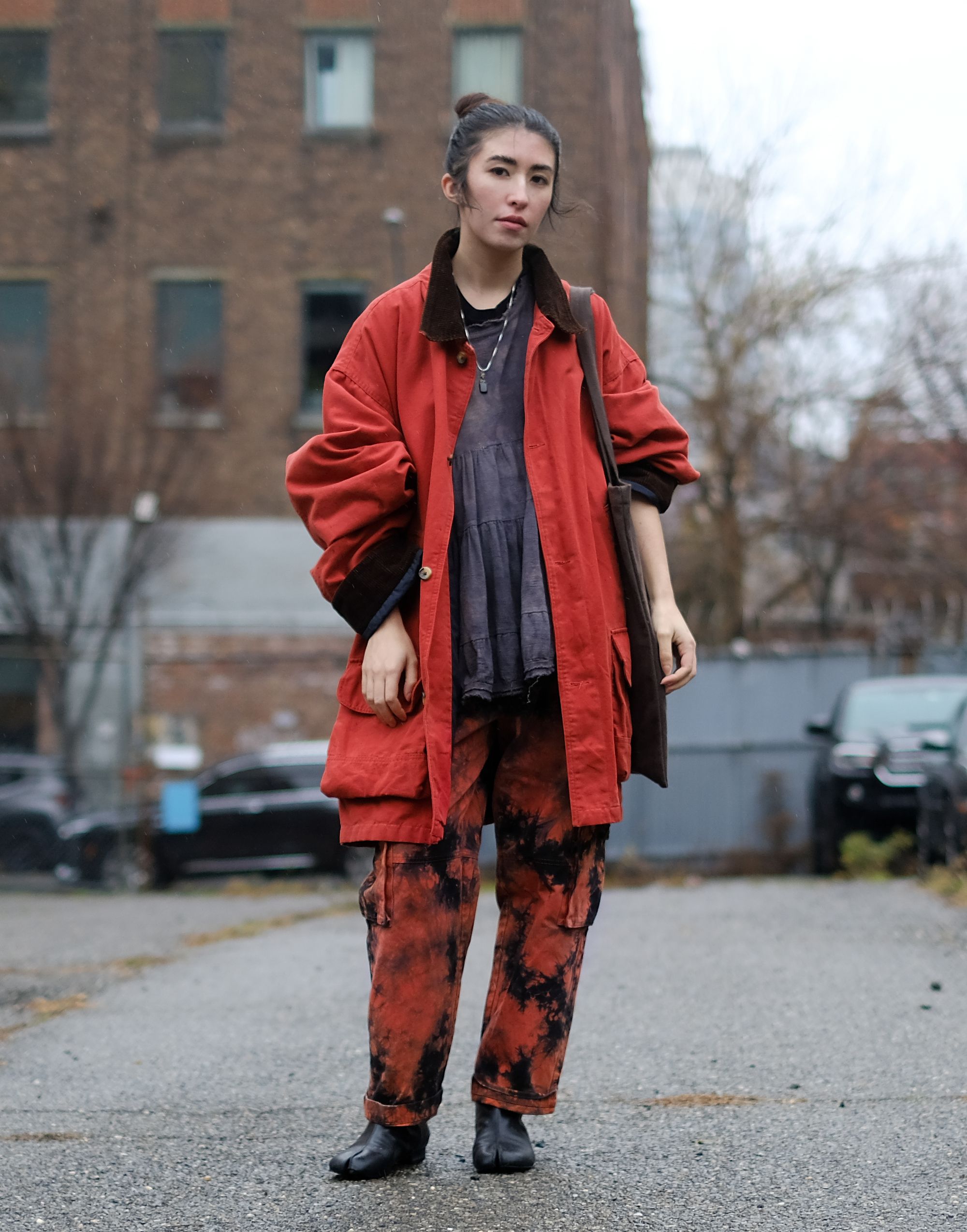
Lessons So Far
I knew, going in, of course, that style is deeply personal. But it was kind of inspiring to hear how and why none of them cares about what others think, or even about being understood. You'll see one person who cares in part two... kind of. It's not what you think. (subscribe if you feel like subscribing)
Nobody is too straightforward. There are no political messages on their tees or hats. Style, as a medium of expression, is generally not that prosaic. Ethan's approach is the closest; he'll wear graphic tees for things he's a fan of.
They agreed on a few little things. Larry hates recommendation culture, and so does Ethan—I let Larry know that this reminded me of Ethan, and he didn't seem to mind the comparison: "I love Ethan, to hear that from you, for me, that's the highest compliment."
Charlie is in the process of figuring out a business-appropriate wardrobe that's still fully expressive: something Ethan has been working on too, post-pandemic. They both dressed in ways nobody understood in high school, but used that experience to refine their tastes into something people can appreciate today.
But there were also surprising moments of disagreement. Larry finds himself settling into uniforms, while Ethan almost never repeats an outfit. Ethan and Charlie's interpretations of Americana and vintage menswear come across totally different—more so than I thought they would.
And they're all trying to express different things. Ethan is dressing to represent his hobbies and interests, and clothing happens to be one of them. Larry is just wearing clothes that make him feel good, and put him in a good mindset, and other people just happen to read a vibe from it. Charlie is trying to express deep, day-to-day changes in their identity and mood.
But they're all expressing themselves, and it all works. Let personal style reign.
